5+ Years Living in Split: Expat Rainee Wang from Xi’an, China
May 26, 2022 - In our new TCN series, we uncover the lives of expats that have spent over 5 years living in Split. Next up, meet Rainee Wang from Xi’an, China!
Two idyllic weeks on a Croatian beach is very different from the realities of full-time living. So what is it really like to live in Croatia as an expat? In a new series on TCN, we meet expats who have lived here for 5 years or more, to find out from them the good, the bad, and the ugly of 12-month living in Croatia. Next up, Rainee Wang from Xi’an, China!
1. Tell us firstly how you came to Croatia? What motivated you to choose this slice of paradise and how long have you now been here?
I was born and raised in central China. After college graduation, I moved to Europe to continue my study in hospitality, and years working in Holland, the US, China, India, and Montenegro.
The first time I came to Croatia was in 2006 and I visited Dubrovnik, Split, and Zagreb. I was amazed by the beauty of Croatia. These 3 places are all special in their way. I moved here at the end of 2013. We decided to start our own business here in Split. It has been almost 9 years now.
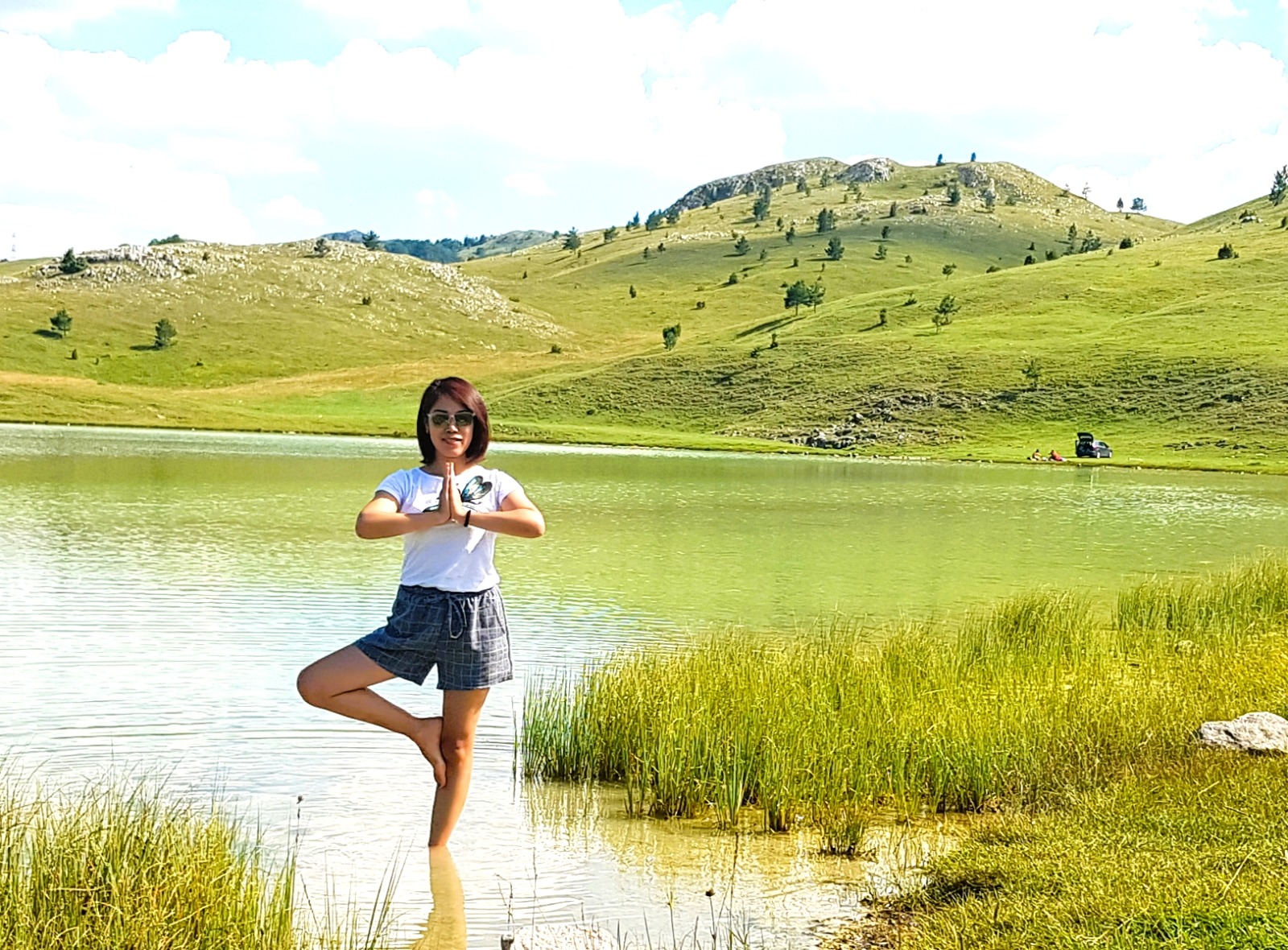
2. Looking back, what were your perceptions and expectations?
There are some similarities between Croatian culture and Chinese culture. We are both very family-oriented cultures. Family is more important than oneself. Hospitality is a very important part of the social stand. When I visit a Croatian family, the warm welcome I get and the way they take care of me, really reminds me of home, with endless food and drinks, and they won’t let you leave the house without a satisfied stomach. But on the other hand, there are big differences in the business world. In Croatia, especially in Dalmatia, it is very lay-back. This kind of “po lako” culture doesn't exist in the Chinese business world. It made me very uncomfortable at the beginning. I felt like I was living in the last century. I was sure “po lako” culture would never succeed in business.
3. After 9 years here, how have those perceptions changed. Do you now view Croatia differently?
After nine years of living in Croatia, I have changed a lot. I'm used to “po lako” culture. I remember complaining “Nothing is finished on time!” “Look at these Croatians, they just drink coffee all day long.” “Nothing is more important than a coffee break” But now, I am almost one of them. Of course, I cannot change my Chinese nature completely. However, I started to understand why it is this way, and even see the beauty of it. Being slow is not just working slowly. It is 'stop for a moment and enjoy'. It is taking time for yourself. Which I think is the true luxury in the modern world.
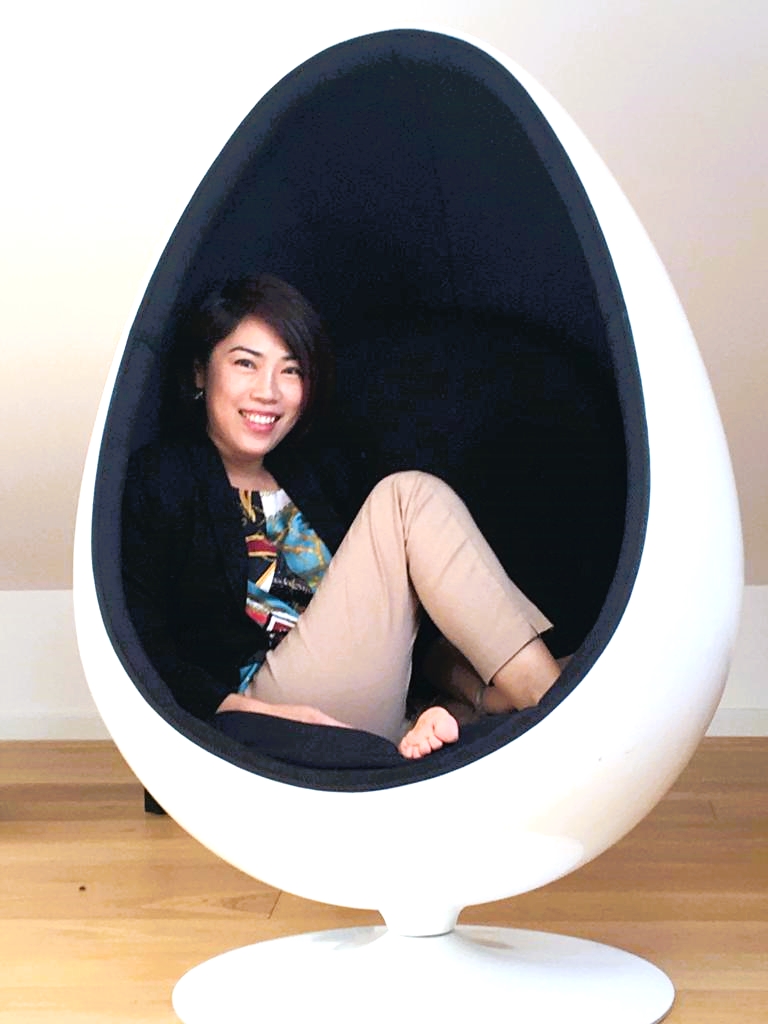
4. After your 9 years, the 3 things you love most about Croatia?
When people ask me about Croatia, the first thing that comes to my mind is the beautiful climate, warm people, and delicious food. I think there is no need to say anything about the climate. Nature can speak for itself. People are very warm and kind, I was always treated nicely as a foreigner. However, I have to say it is very difficult to get into the local circle in Split. It seems they don’t like to make friends with outsiders. But it is not true, once you find local friends, they take you in, and treat you like family. The food is delicious. I guess in China food production becomes industrialized mass production. It is hard to find a fresh market in big cities. The taste of fruit and vegetables becomes artificial. That is why I was so surprised to taste “real” vegetables, fruit, and meat. The flavor is incomparable.
5. And the 3 things you would like to change.
Well, I guess the first thing is always the bureaucracy like everyone else would mention. “Jedan papir fali” is true. There is always one paper missing. I have never finished anything with just one visit to the government building. But after nine years of dealing with MUP, I have developed my way of communicating with them. Since Covid started, when most of the communication went online, it is much more efficient.
I mentioned earlier that I started to enjoy the “po lako” culture. But sometimes. I still miss the real business world when everything is organized and punctual. I miss the procedures (I cannot believe I am saying this).
6. Given your experiences, what advice would you give to any would-be expat thinking of making the move?
I'm not a person who gives advice, because everybody has a different lifestyle and different cultural background. But for Chinese people who want to move to Croatia, I would suggest being patient. Things will be done. But it just needs more time. One minute of Croatian time is not one minute of Chinese time. We always need to find a way around and use the connections we have. If you don’t have one, build your connections.
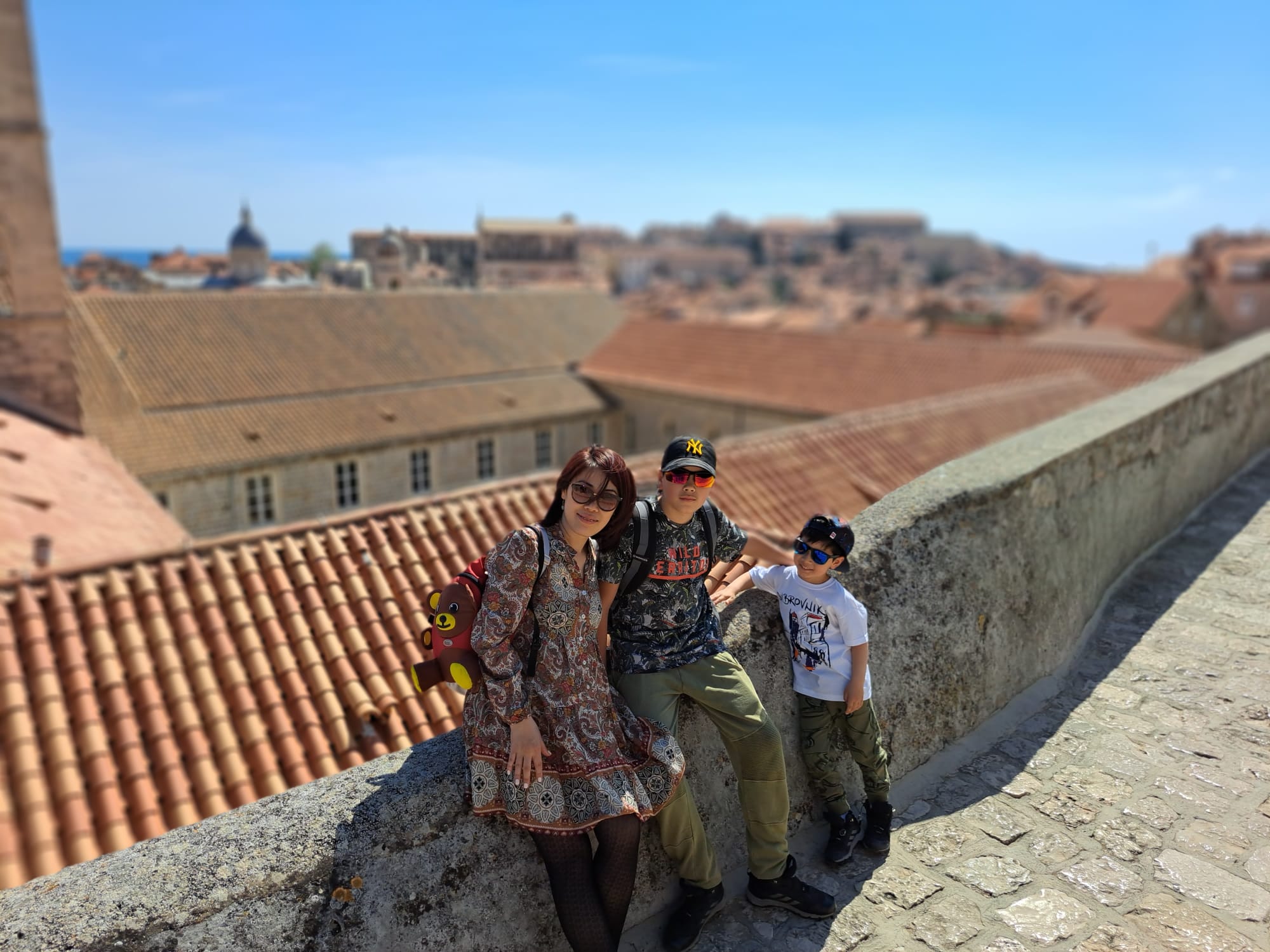 7. The most beautiful place in Croatia, and why?
7. The most beautiful place in Croatia, and why?
I think there is no most beautiful place, only a more beautiful place. Each place is unique. My first visit to Croatia was to Dubrovnik, I thought this is the most beautiful place in Croatia, but when I arrived in Plitvice I felt a different beauty. The islands are all beautiful in their own way. For me, the most beautiful place in Croatia is the island of Vis, the small yet authentic little town with amazing nature and rich history behind it. However, as I said before, Vis is my favorite place in Croatia for now, maybe in the future, I will have more discoveries.
8. Your favourite moment of your time in Croatia?
I have had many memorable moments in Croatia. The favorite ones are always the time spent with my favorite people. Weddings for sure. I have been to a few weddings in different locations. I enjoyed them all, the stunning view, and the cheerful people. The Christmas market on the Riva, back in 2015, and 2016 was special. I was working in one of the “kućica” on the Riva. In the cold winter, the atmosphere of the whole place was warm. Now they have moved the Christmas market to Đardin.
Are you an expat who would like to be featured in this series? If yes, please contact This email address is being protected from spambots. You need JavaScript enabled to view it. Subject Expat
For more, make sure to check out our dedicated lifestyle section.
5+ Years Living in Split: Expat Kimmy Chan from Hong Kong
May 19, 2022 - In our new TCN series, we uncover the lives of expats that have spent over 5 years living in Split. Next up, meet Kimmy Chan from Hong Kong!
Two idyllic weeks on a Croatian beach is very different from the realities of full-time living. So what is it really like to live in Croatia as an expat? In a new series on TCN, we meet expats who have lived here for 5 years or more, to find out from them the good, the bad, and the ugly of 12-month living in Croatia. Next up, Kimmy Chan from Hong Kong!
1. Tell us firstly how you came to Croatia? What motivated you to choose this slice of paradise and how long have you now been here?
I am Kimmy Chan, from Hong Kong, and have been living in Split for 9 years. I received my Croatian citizenship last year. I came to Croatia in 2007 because of an internship through an international student exchange program. Back then I had to choose between Croatia, Poland, the Czech Republic, and Ukraine, and honestly, I had no idea what Croatia is like, so I Googled it and the first photo I saw was the iconic golden triangle of the Zlatni Rat Beach on Brač Island. “It’s BEAUTIFUL and I have to see it!” I said to myself and that’s how I started my story in Croatia. During the internship, I met the love of my life through a friend and we had a long-distance relationship for 5 years. In 2012, I relocated to Split from Hong Kong and got married the year after. Now I have 2 daughters and 2 bunnies
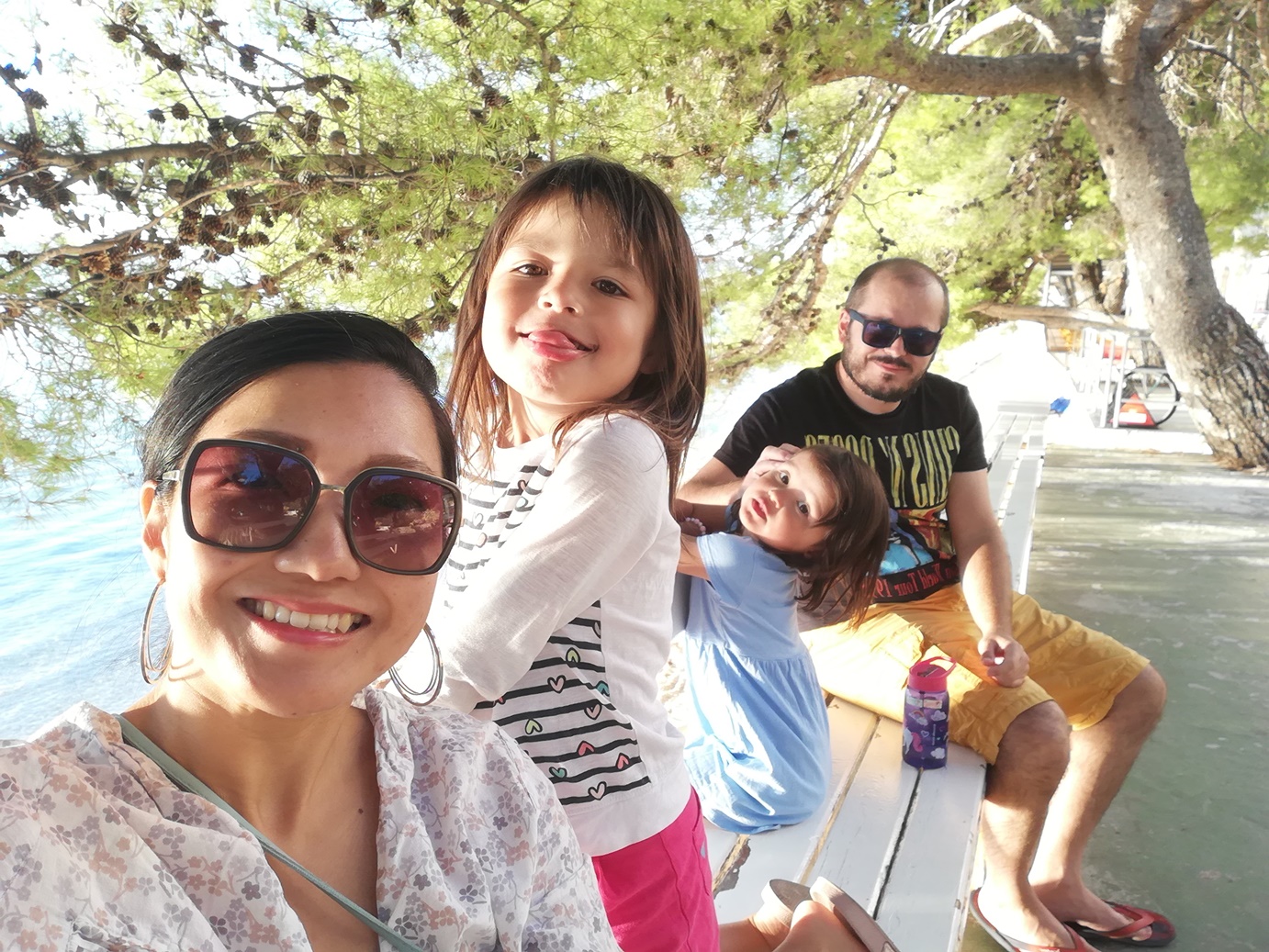
2. Looking back, what were your perceptions and expectations?
I actually experienced a lot of cultural shocks when I first came to Split in 2007. The first shock I had was on the very first day of my arrival. It was a Saturday and the supermarket back then closed at 2 pm on Saturdays and closed on Sundays. From that moment, I realized that Croatia is a country that cared more about family or rest time than money. The second thing that shocked me was the very limited choices for foreign cuisines. I remember there were only 1 Mcdonald's, 1 Mexican restaurant, and 1 Chinese restaurant in Split in 2007. Moreover, the menus in the fast-food stores and konoba everywhere were almost the same, and I wondered why people didn’t find it boring. Nevertheless, the biggest shock of all was the inefficient administration which is a well-known problem even for locals. I expected more European standards, working hard, diversity and open-mindedness in Split.
Despite the cultural shocks, I have been constantly amazed by how much Croatian people love their country, sports (especially football of course), jokes, and history.
3. After 9 years here, how have those perceptions changed. Do you now view Croatia differently?
In the last 9 years of living in Split, I have witnessed improvements in terms of touristic offers, acceptance of foreigners, and administration. It is exciting to see that Split/Croatia is advancing, slowly but surely. I would say that having some of my perceptions or expectations changed is not only because of the city/country’s endeavor, but also because I got to know more about the culture, lifestyle, and historical reasons, and I tried to embrace and accept them. Moreover, I have children now, so the “pomalo” and simpler lifestyle in Split which I used to find too slow is now great for me and my family.
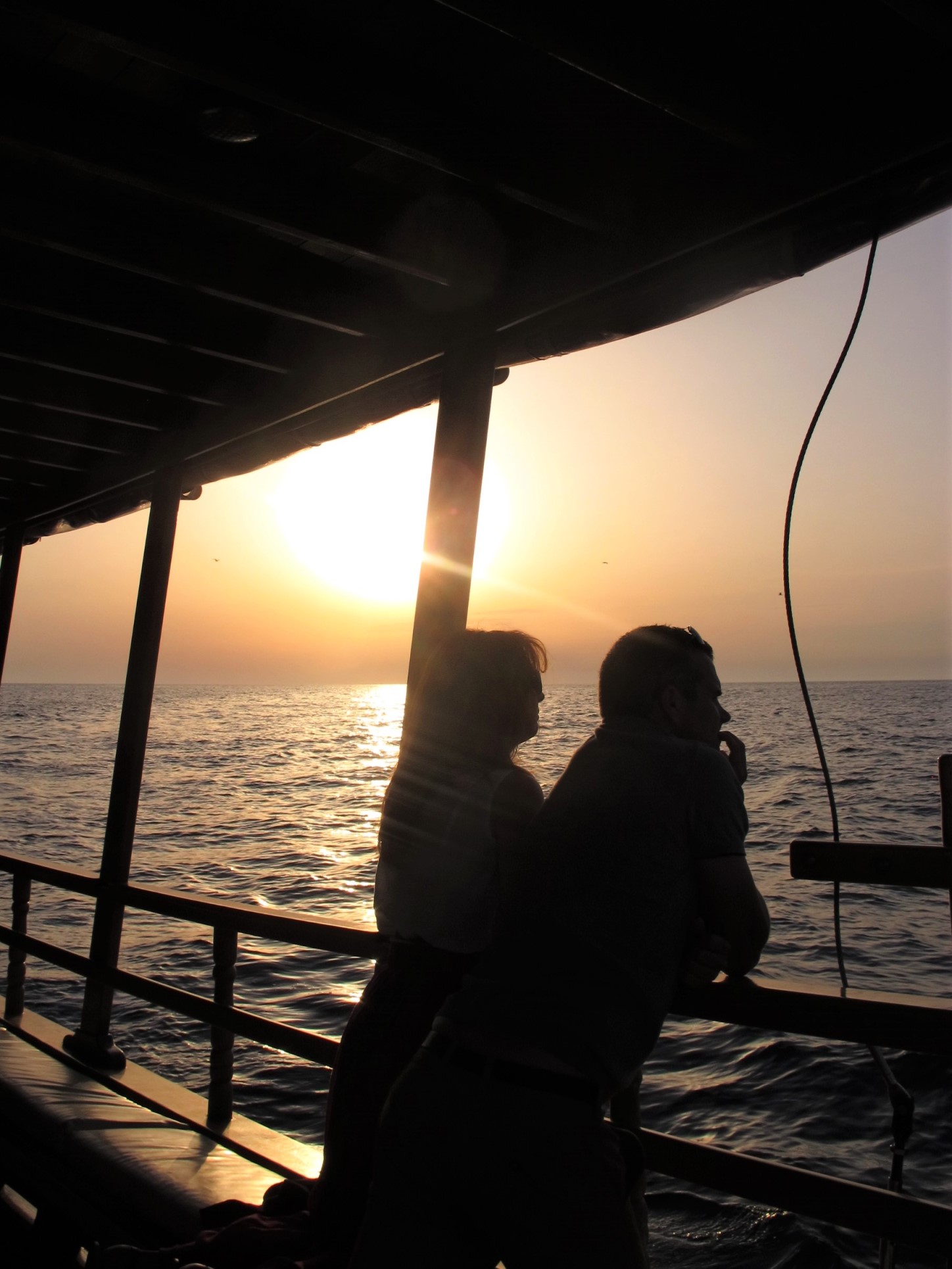
4. After your time year, the 3 things you love most about Croatia?
Water - I genuinely find the water in Croatia is very clean and I love drinking tap water in Split which is sweet and tasty. And of course, the Adriatic Sea is a gem.
Safety - Croatia is a very safe country. I feel safe walking alone at night, even on some quiet streets.
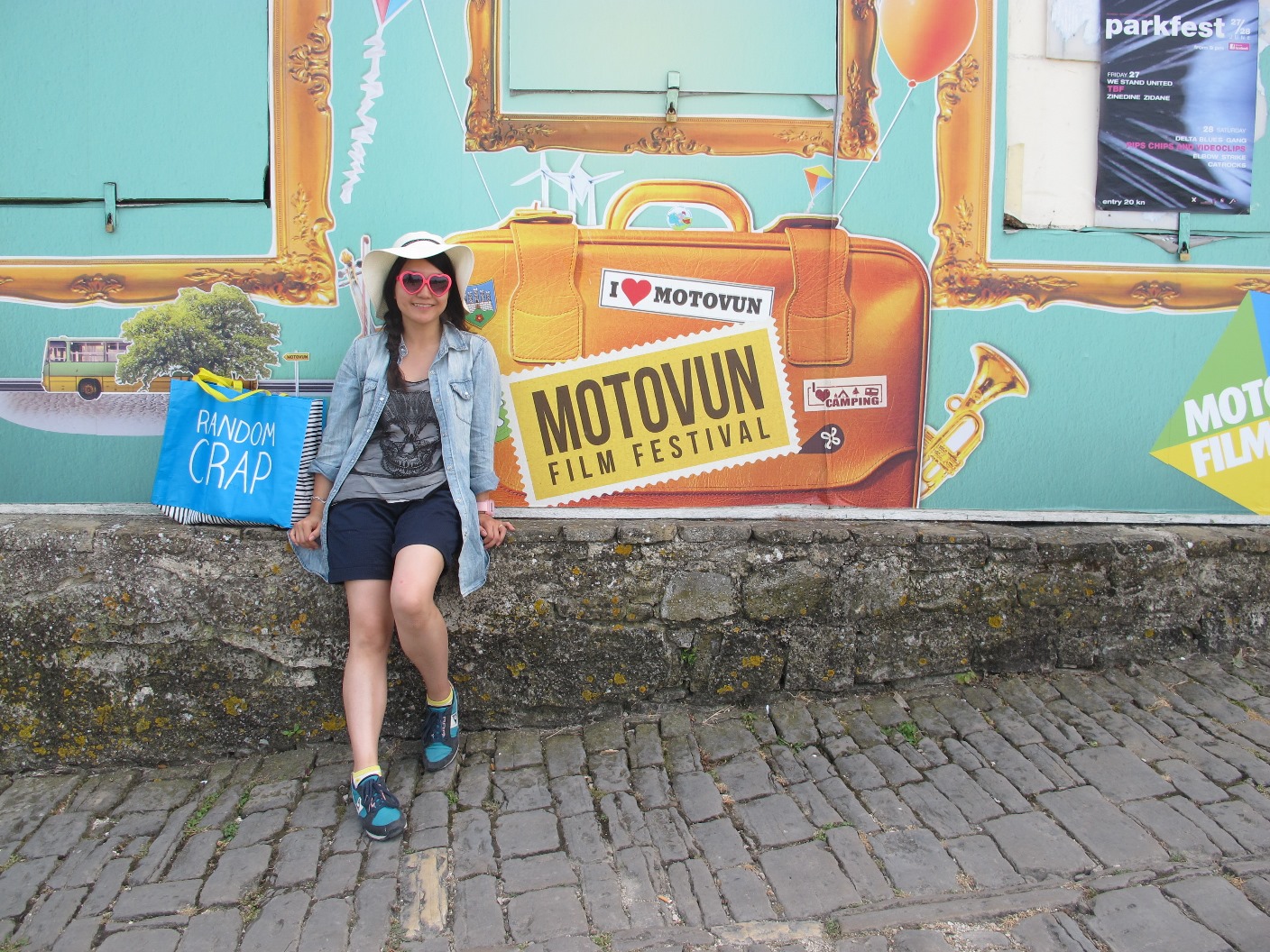
People - I am very impressed by how much Croatians love their country and how they are proud of their culture, food, nature, national teams, and so on. I met many Croatian families and they are all amazing hosts, always give the best to guests and make you feel welcomed. It may not be easy to be friends with locals at the beginning, but once the friendship is developed, they keep you dear to their hearts.
5. And the 3 things you would like to change.
The culture of “using connection”. Ever since the beginning of my life in Croatia, I have heard so much from the locals about how everything is done through connection. From getting a place in public kindergarten to getting a job in government, many people find it normal to use connections to have shortcuts or even get the deal directly.
Parking issues in Split. There are not enough parking spots in Split. It is always a headache to find parking, especially in the center. There are many “creative” drivers who like to leave their cars somewhere they are not supposed to.
The real estate prices in Split are crazy for both rental and buying.
6. Given your experiences, what advice would you give to any would-be expat thinking of making the move?
Look up information from expat groups on social media and expatincroatia.com. They are very helpful and informative.
The administration and paperwork is complicated, so be patient and it is very likely that you need a native Croatian speaker (e.g. lawyer, translator, local friend) to help you deal with it.
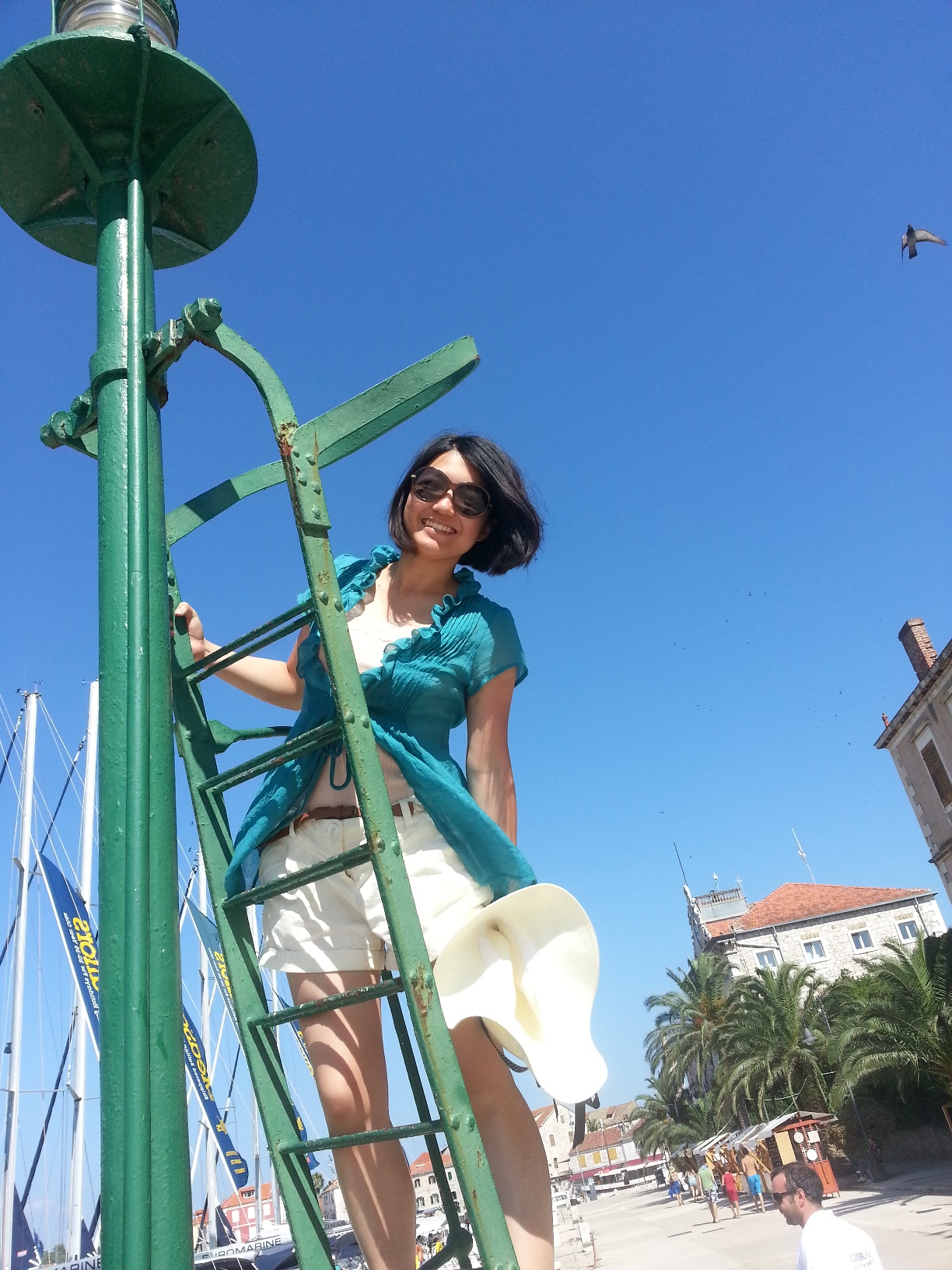
People from different regions in Croatia have different mentalities and work styles. In the southern part (Dalmatia), people, in general, are quite relaxed and less organised, so it is important to manage your expectation and find a place where you feel comfortable staying or work in.
7. The most beautiful place in Croatia, and why?
I love Istria. Love the sea, the green, and colour houses. Istria is not very big but it has a lot to offer.
Your favourite moment of your time in Croatia?
One of my favourites is the sunset dolphin-watching tour in Rovinj. The sunset was romantic, the host was friendly and so passionate to share homemade liquor with guests, the dolphins were lovely and Rovinj is a beautiful town. The tour was a very special experience.
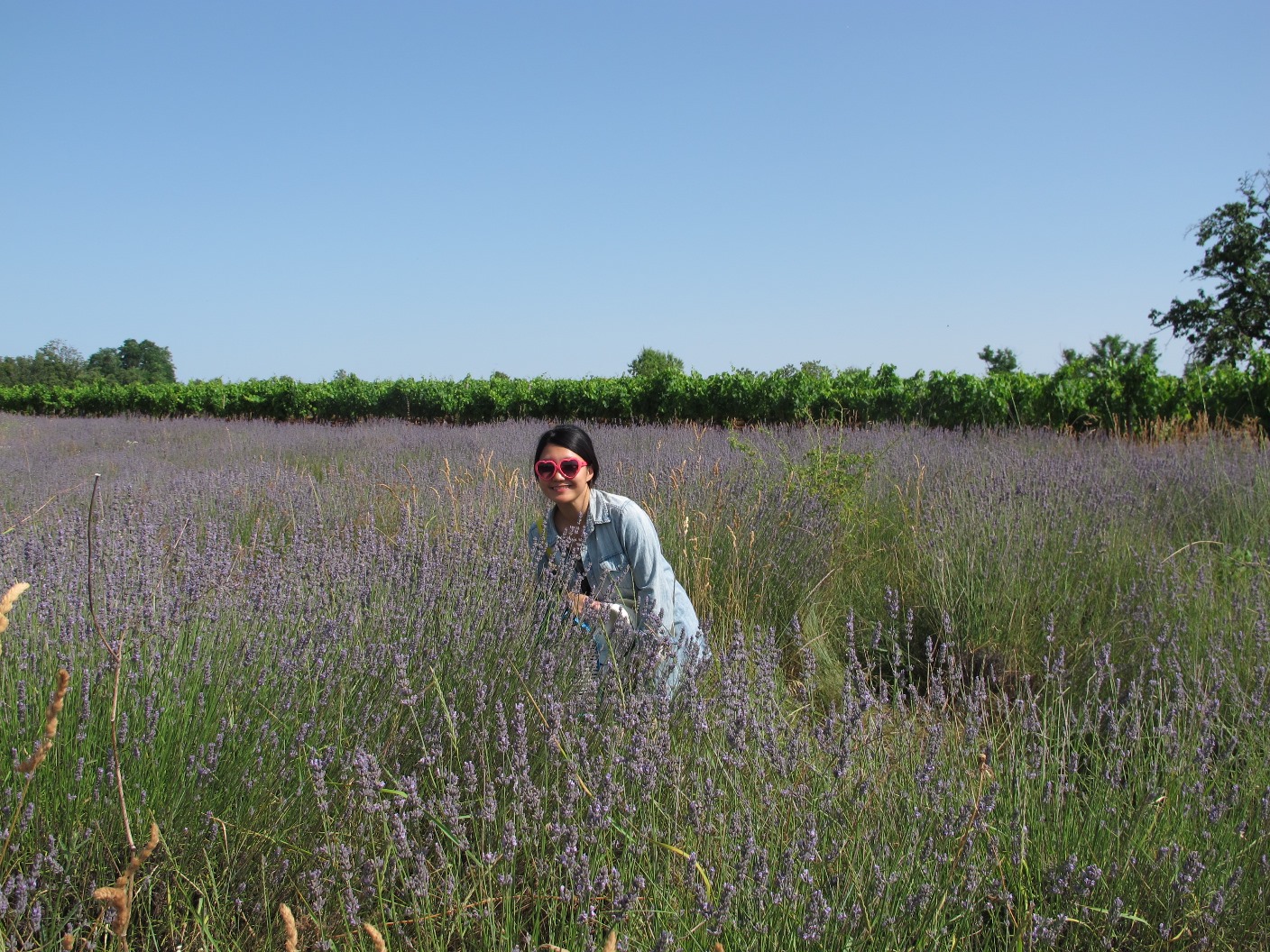
Are you an expat who would like to be featured in this series? If yes, please contact This email address is being protected from spambots. You need JavaScript enabled to view it. Subject Expat
For more, make sure to check out our dedicated lifestyle section.
5+ Years Living in Split: Expat Sandra Perkovic from Canada
May 16, 2022 - In our new TCN series, we uncover the lives of expats that have spent over 5 years living in Split. Next up, meet Sandra Perkovic from Canada.
Two idyllic weeks on a Croatian beach is very different from the realities of full-time living. So what is it really like to live in Croatia as an expat? In a new series on TCN, we meet expats who have lived here for 5 years or more, to find out from them the good, the bad, and the ugly of 12-month living in Croatia. Next up, Sandra Perkovic from Montreal, Canada!
1. Tell us firstly how you came to Croatia? What motivated you to choose this slice of paradise and how long have you now been here?
I met my husband in Canada while he was on tour, we then got married and I moved to Croatia. For me, moving to Croatia was a childhood dream of mine. I have been living in Croatia for 20 years - 10 in Zagreb and 10 in Split.

2. Looking back, what were your perceptions and expectations?
Croatia has exceeded all my expectations, even though my cousins used to tell me it's not the same vacationing here and living here.
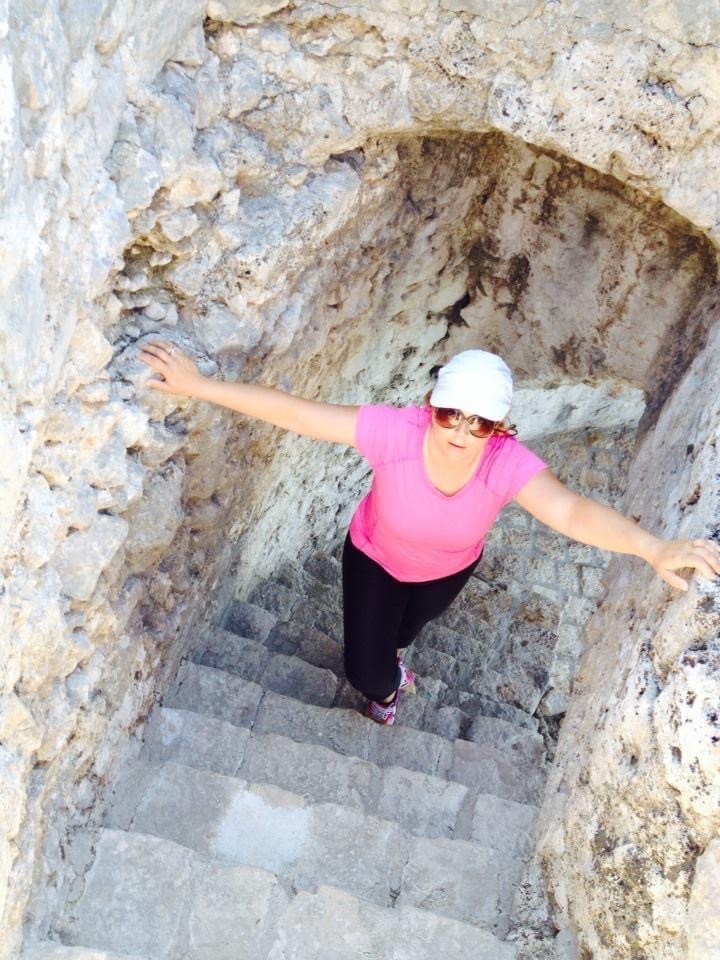
3. After 20 years here, how have those perceptions changed. Do you now view Croatia differently?
I think that Croatia is the best place to raise a family. It's so fun living here and I love nature and the fact that it is a small country with so many different climates. I love that you can be on the beach and in one hour you can be skiing.
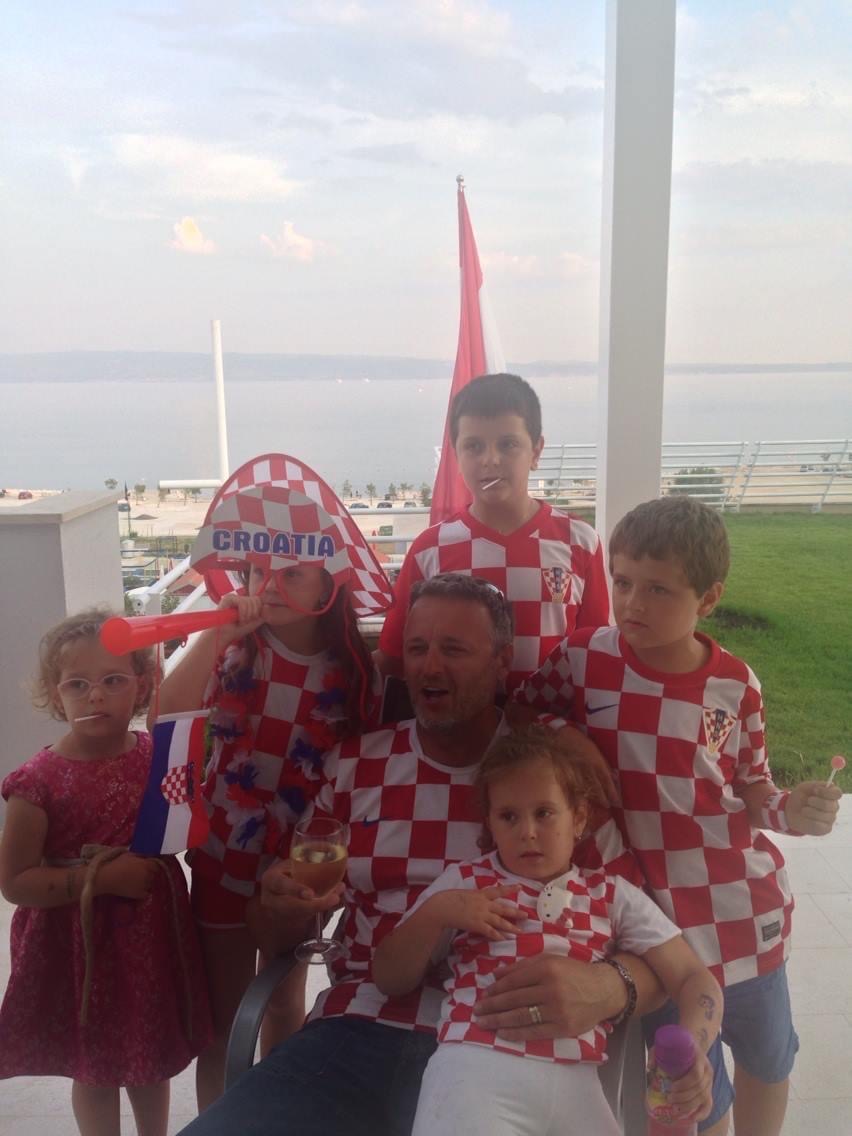
4. After your time year, the 3 things you love most about Croatia?
I love Croatia for its safety; children have freedom here because it is so safe. I love how there is always a festival going on, it's just so much fun living here and lastly, I love nature, the national parks, the sea, the mountains, such beautiful nature, and of course how everyone always has time for kava…. Kava in Croatia can last for hours.
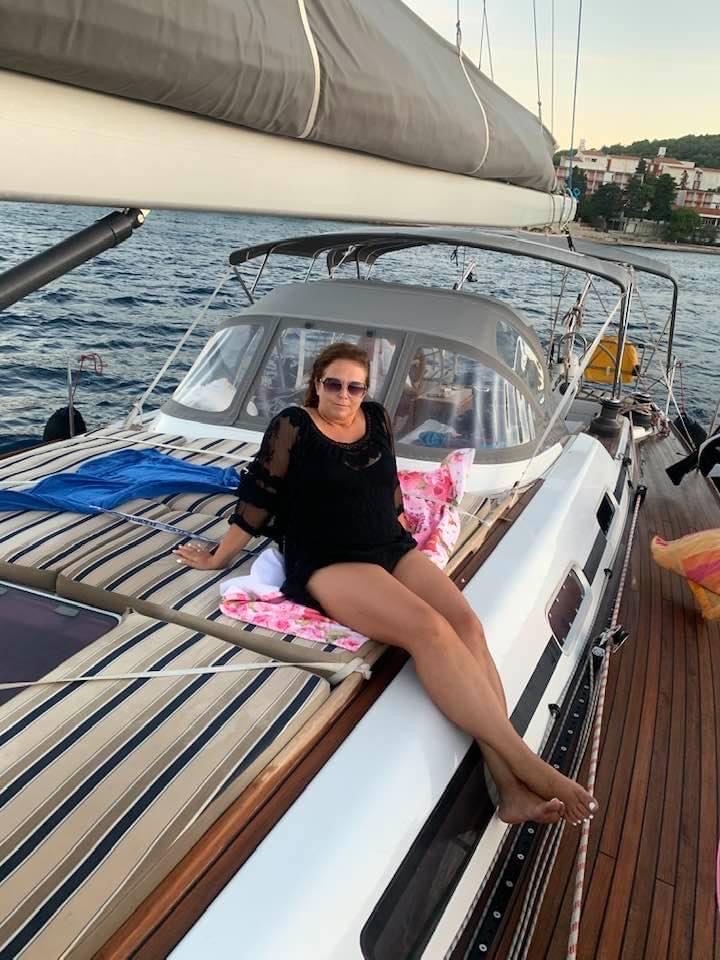
5. And the 3 things you would like to change.
I wish that people were more pet friendly, although this is getting better, I wish that people got jobs based on their qualifications rather than through connections and I wish that the school system was not so demanding.
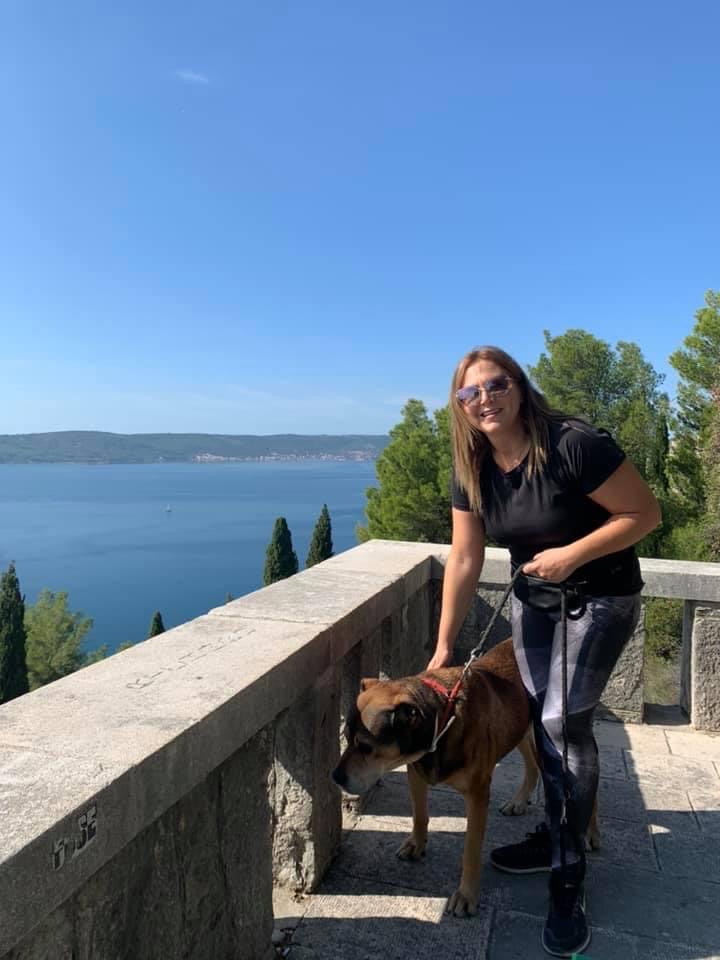
6. Given your experiences, what advice would you give to any would-be expat thinking of making the move?
I will never regret coming here, I just regret not coming sooner. If you are considering the move to Croatia don’t hesitate.

7. The most beautiful place in Croatia, and why?
Oh, so many beautiful places. I love Zagreb because it’s a big city and has it all, but I also love the islands along the Dalmatian coast.
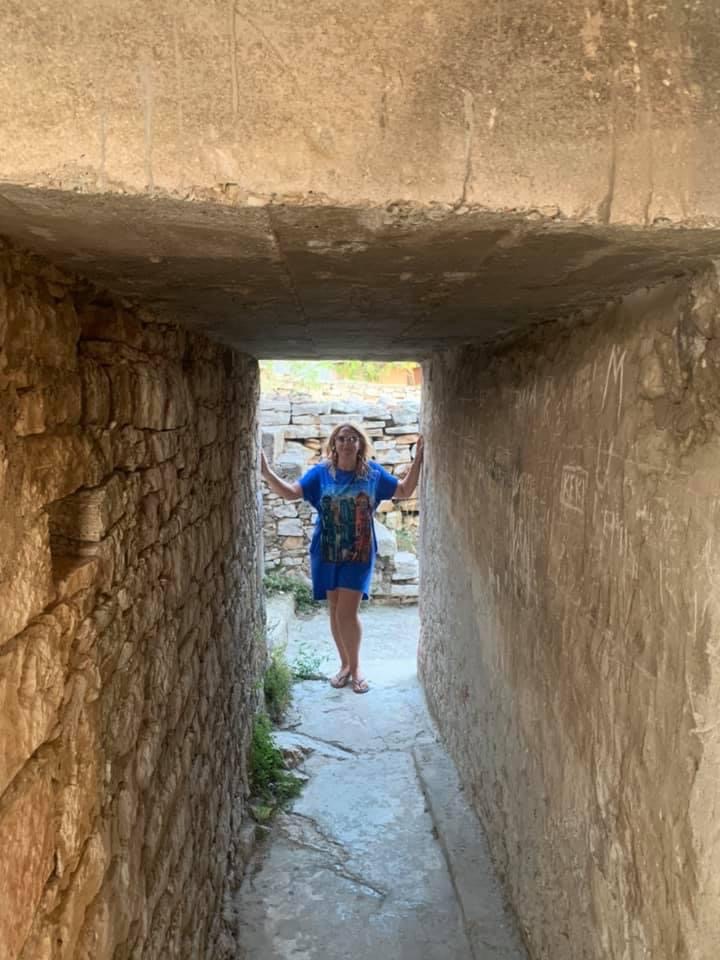
8. Your favourite moment of your time in Croatia?
My favourite moment is waking up each day in Croatia and being aware that I am living my dream. Croatia is a dream come true.

Are you an expat who would like to be featured in this series? If yes, please contact This email address is being protected from spambots. You need JavaScript enabled to view it. Subject Expat
For more, make sure to check out our dedicated lifestyle section.
5+ Years Living in Split: Expat Eric del Castillo from Mexico City
May 11, 2022 - In our new TCN series, we uncover the lives of expats that have spent over 5 years living in Split. Next up, meet Eric del Castillo from Mexico City!
Two idyllic weeks on a Croatian beach is very different from the realities of full-time living. So what is it really like to live in Croatia as an expat? In a new series on TCN, we meet expats who have lived here for 5 years or more, to find out from them the good, the bad, and the ugly of 12-month living in Croatia. Next up, Eric del Castillo from Mexico City!
1. Tell us firstly how you came to Croatia? What motivated you to choose this slice of paradise and how long have you now been here?
It's a long story, but starts in Sausalito, California. In 1996, I was at an artistic residency at The Headlands Center for the Arts. There I met Neli Ružić an artist from Split and I fell in love with her at the first moment. A year later I visited Split for the first time when Luka was born, the following year Neli and Luka visited Mexico, and a year later I returned to Split for them and we went to live in Mexico. Pablo was born in Mexico City and we lived there for 13 years. At a hearing in the summer of 2010, we decided to move and live in Split, after two years of preparations we finally arrived in Split in 2012. Now we have almost 10 years living here.
2. Looking back, what were your perceptions and expectations?
From 1997 to 2010, I saw a great change in the infrastructure and the economy of the country and good quality of life. However, in Mexico, the so-called war against drugs began and violence and insecurity grew up. Our expectation was to offer our children a much safer and healthier environment. Every day I confirm that we were not wrong and that we made the right decision.
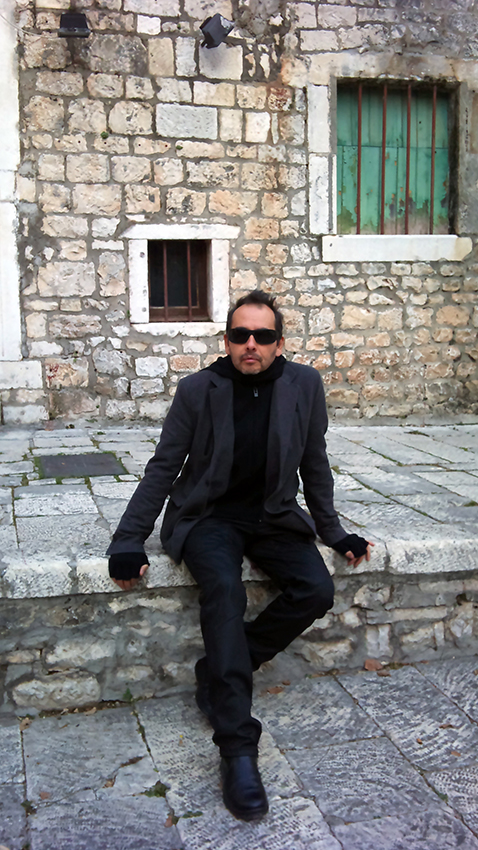
And of course, language is an issue, but malo po malo. I'm doing better and already I got my permanent residency.
3. After 10 years here, how have those perceptions changed. Do you now view Croatia differently?
There is no perfect place, as everywhere there is bureaucracy, corruption, lack of budget, legal gaps, poverty, and inequality. But I think that these are things that are much easier to solve in a country of 4 million than in others of 130 million.
4. After your time year, the 3 things you love most about Croatia?
The art scene and the artistic community, it's a very supportive group and I've made great friends, they are amazing people.
The food and the good quality and freshness of local products, and of course the extraordinary good weather.

5. And the 3 things you would like to change.
A more open society
Simplicity in government office services, meaning less bureaucracy and more digital services.
To have in the old town center a digital fiber-optic network.
A better system and more awareness on separation and recycling of waste disposals.
6. Given your experiences, what advice would you give to any would-be expat thinking of making the move?
Split is a fascinating city, with great history. Very safe and easy to access and move around, everything is relatively close. For me, it is a source of inspiration and in every corner, I always find extraordinary details, with so many layers of history one above another, it is like a visual palimpsest.
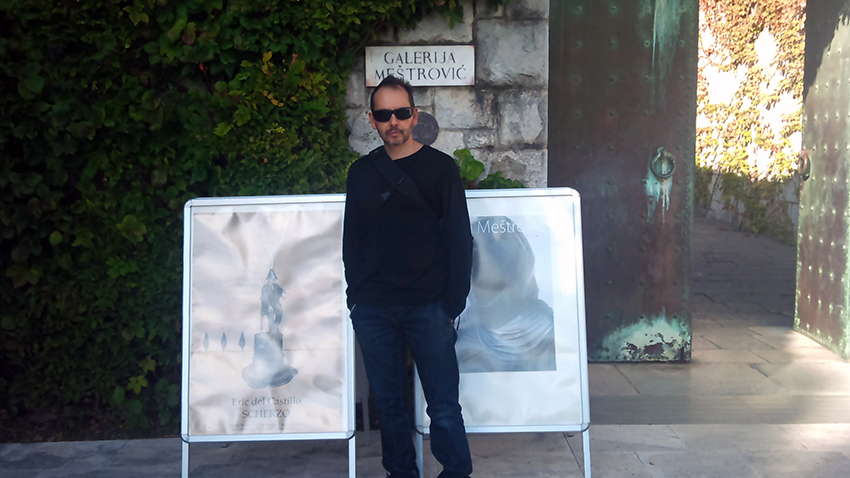
7. The most beautiful place in Croatia, and why?
I couldn't mention just one there are lots of them: I love the cities of Split and Zagreb, the landscapes, the sea, and the islands. Nature is incredibly beautiful in Croatia.
8. Your favourite moment of your time in Croatia?
There are many moments that I have really treasured. Christmas is one of the few dates that we can all be together. When I have exhibitions, I had several exhibitions in split and Zagreb.
When we receive family and friends from Mexico, the house is always open to receive visitors.
Summer In Šolta, we are there a big part of summer and we spend all the time in nature.
I always have lots of work to do there, taking care of the garden and plants, trying to plant and develop my avocado trees, for now, I haven't succeeded, improving year by year the technique of suho zid, and of course, always creating some artwork.
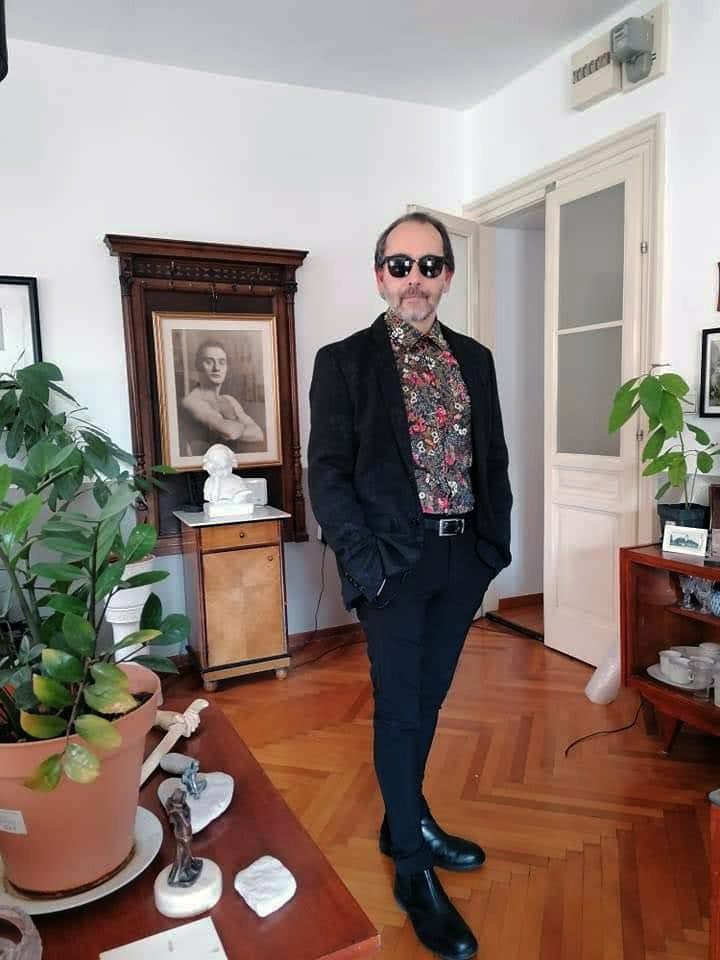
Learn more about Eric here:
facebook@ericdelcastilloarchive>
Are you an expat who would like to be featured in this series? If yes, please contact This email address is being protected from spambots. You need JavaScript enabled to view it. Subject Expat
For more, make sure to check out our dedicated lifestyle section.
5+ Years Living in Split: Expat Marko Gómez Karadza from Peru
May 10, 2022 - In our new TCN series, we uncover the lives of expats that have spent over 5 years living in Split. Next up, meet Marko Gómez Karadza from Peru!
Two idyllic weeks on a Croatian beach is very different from the realities of full-time living. So what is it really like to live in Croatia as an expat? In a new series on TCN, we meet expats who have lived here for 5 years or more, to find out from them the good, the bad, and the ugly of 12-month living in Croatia. Next up, Marko Gómez Karadza from Lima, Peru.
1. Tell us firstly how you came to Croatia? What motivated you to choose this slice of paradise and how long have you now been here?
I came to Croatia being driven by the need to get connected to my roots, as I'm a Croatian descendant (my grandpa was Croatian). Initially, my idea was to spend 1 year here to enjoy the place, see my relatives and get more in touch with the culture. For that, I joined the program called "Croaticum" to also learn the language while I was sorting my Croatian documents, which also was part of my initial goal. Once I arrived in Croatia, it didn't take me more than 1 month to realize I would stay for way longer than planned. Currently, I have almost 6 years living in Split.
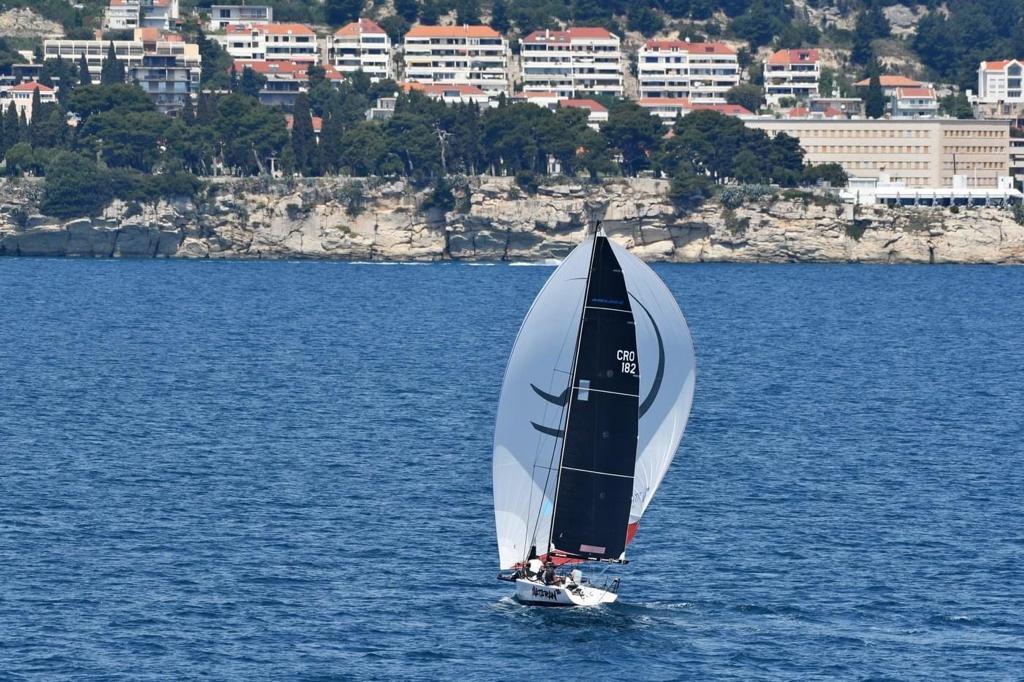
2. Looking back, what were your perceptions and expectations?
In terms of my expectations, I already knew how beautiful it was because of some pictures I saw beforehand, but once there I can say that reality surpassed my expectations! Also once here, I got to dive deeper into the historical heritage and culture which is impressive for someone that loves that kind of stuff and knew just a small portion of it. The food was also above my expectations in a very positive way.
3. After 5+ years here, how have those perceptions changed. Do you now view Croatia differently?
After 6 years living here, I have to say that my perceptions didn't change so much. It is true that I have a wider idea of how all works and happens in this country and I'm more aware of the pros and cons of living here, but I would say that your perception will change depending on where you are coming from. I see a lot of things that work way better here compared to my home country, other things are interestingly working in the same way and maybe some others could happen in a better way, but that is some encouragement to eventually help make a positive change on them.
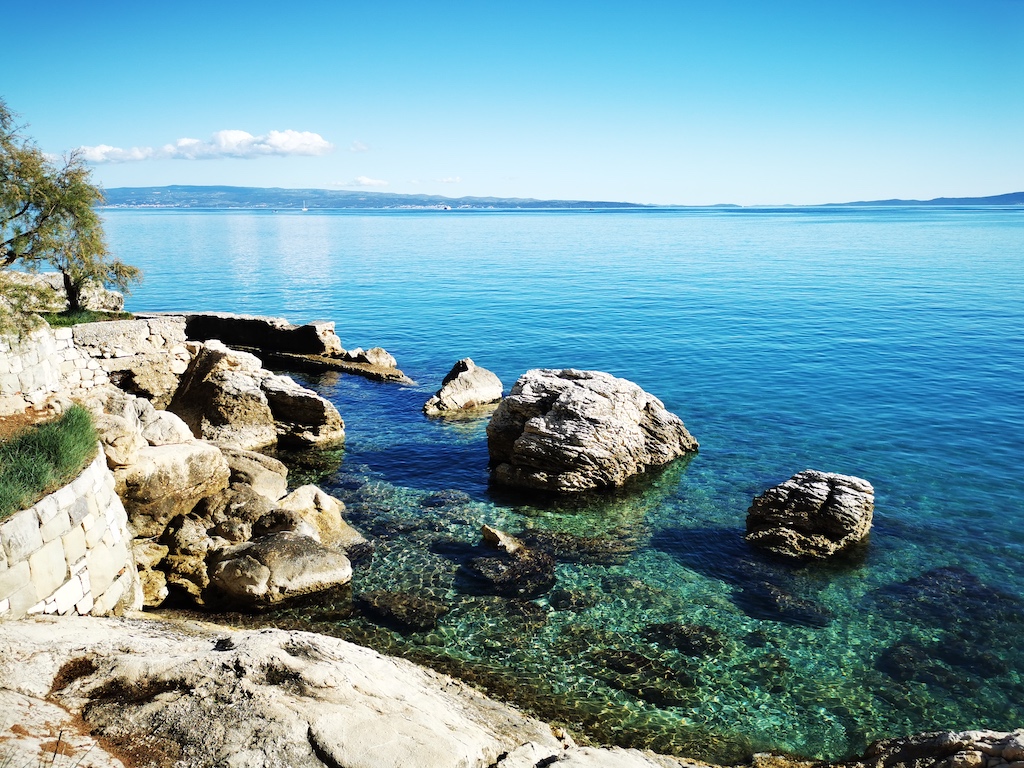
4. After your time here, the 3 things you love most about Croatia?
After 6 years I can say that the 3 things I love most about Croatia are: The beautiful nature and perfect geographic location, the safeness all around the country with a very little delinquency rate compared to other countries; and the beautiful and kind-hearted people I met and shared life with.
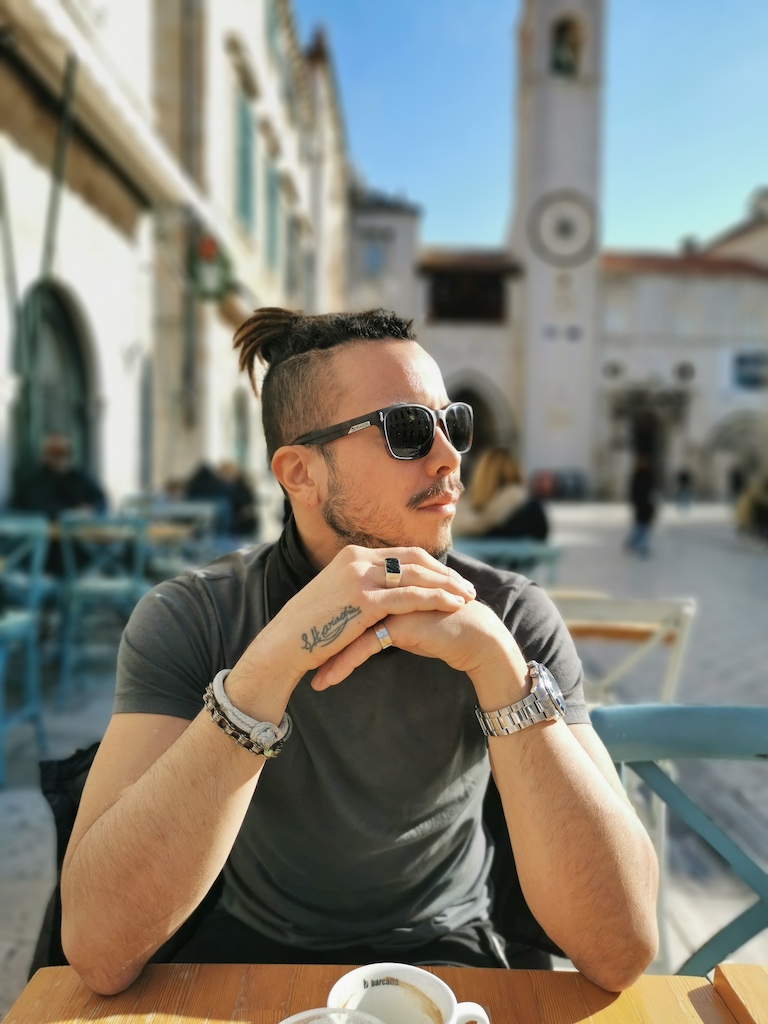
5. And the 3 things you would like to change.
3 things I would change would be: the long, slow and tedious bureaucracy, the lack of support to entrepreneurs and small new companies which are being killed with high taxes mostly; and the focus on building more industries rather than just focusing on tourism.
6. Given your experiences, what advice would you give to any would-be expat thinking of making the move?
I would advise you to learn a bit about the culture and the language beforehand. You are always gonna be welcomed here but it really changes if you are seen as somebody who puts some effort in trying to learn a bit, at least, about their culture and language. People will appreciate it a lot. Also, analyze the industries and business/job opportunities well in advance for a year-round living, normally things tend to change with the seasons so it is good to be some steps ahead in that field.
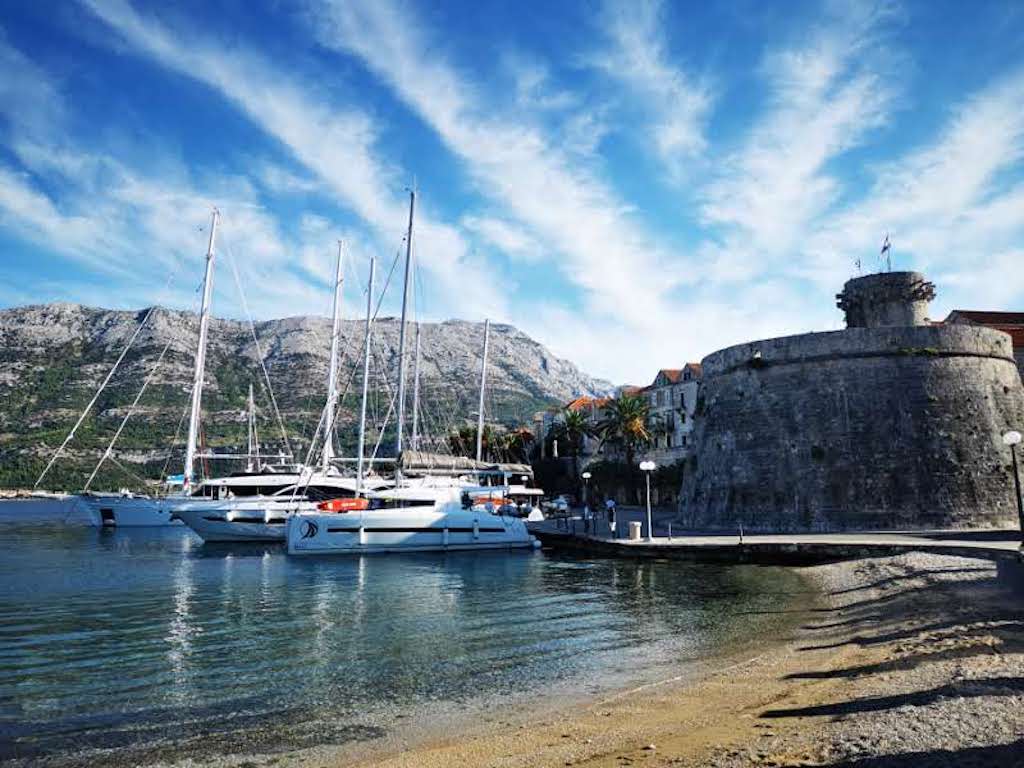
7. The most beautiful place in Croatia, and why?
As a sailor by profession, I dedicated a lot of time to sailing around the Croatian coastline and islands and I have to say that my favorite place is Korčula. It is such a beautiful island full of green all around, amazing lovely bays and impressive historical heritage. Also, since it is very close to the Pelješac peninsula, it is a great place to enjoy some good wines too!
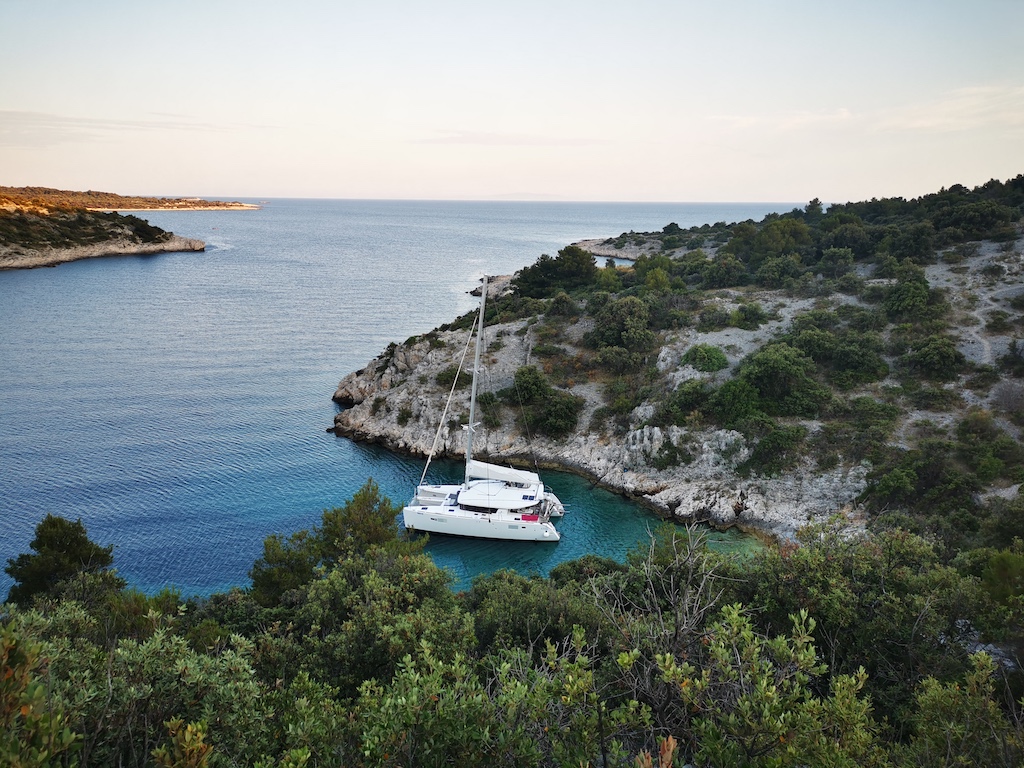
8. Your favourite moment of your time in Croatia?
My favorite moment here I would say was when my mom came to visit me and we went to visit the old house where my grandpa was born and lived as a child.
I live in Split and I am a professional skipper. My Instagram account is @gkmarko where people can see beautiful places around the Croatian coast and can reach me if interested in sailing here!
Are you an expat who would like to be featured in this series? If yes, please contact This email address is being protected from spambots. You need JavaScript enabled to view it. Subject Expat
For more, make sure to check out our dedicated lifestyle section.
5+ Years Living in Split: Expats Andy and Cindy Elder from England
May 9, 2022 - In our new TCN series, we uncover the lives of expats that have spent over 5 years living in Split. Next up, meet Andy and Cindy Elder from England!
Two idyllic weeks on a Croatian beach is very different from the realities of full-time living. So what is it really like to live in Croatia as an expat? In a new series on TCN, we meet expats who have lived here for 5 years or more, to find out from them the good, the bad, and the ugly of 12-month living in Croatia. Next up, Andy and Cindy Elder from England.
1. Tell us firstly how you came to Croatia? What motivated you to choose this slice of paradise and how long have you now been here?
We met 17 years ago on a dating site after both of us having been widowed. Andy was already into sailing and had a dream. He wanted to retire early and buy a boat to live on and travel. He took me on several sailing holidays, including around Dubrovnik, so I could see if I would enjoy that life. On our last trip, we decided to hire a catamaran. I thought it might be more comfortable to live on, instead of a monohull. There weren’t many places that had the second-hand make and model we wanted, but Croatia was one of them. It seemed ideal, as the others tended to be in the Caribbean, a bit far to organise from England! I was still working, so Andy made a trip to Split to see the boat, sent me the photos, and we fell in love with it. He then made several trips by car to finalise everything, the last one coming back only a day before our wedding! We spent our honeymoon on our catamaran “Two Can Play”, and then went back to get everything packed, and either drove it back here, or delivered on pallets through a transportation company. I don’t think we would have made such honest and helpful friends anywhere else. Must have been fate to come to Croatia. We’ve never regretted it.
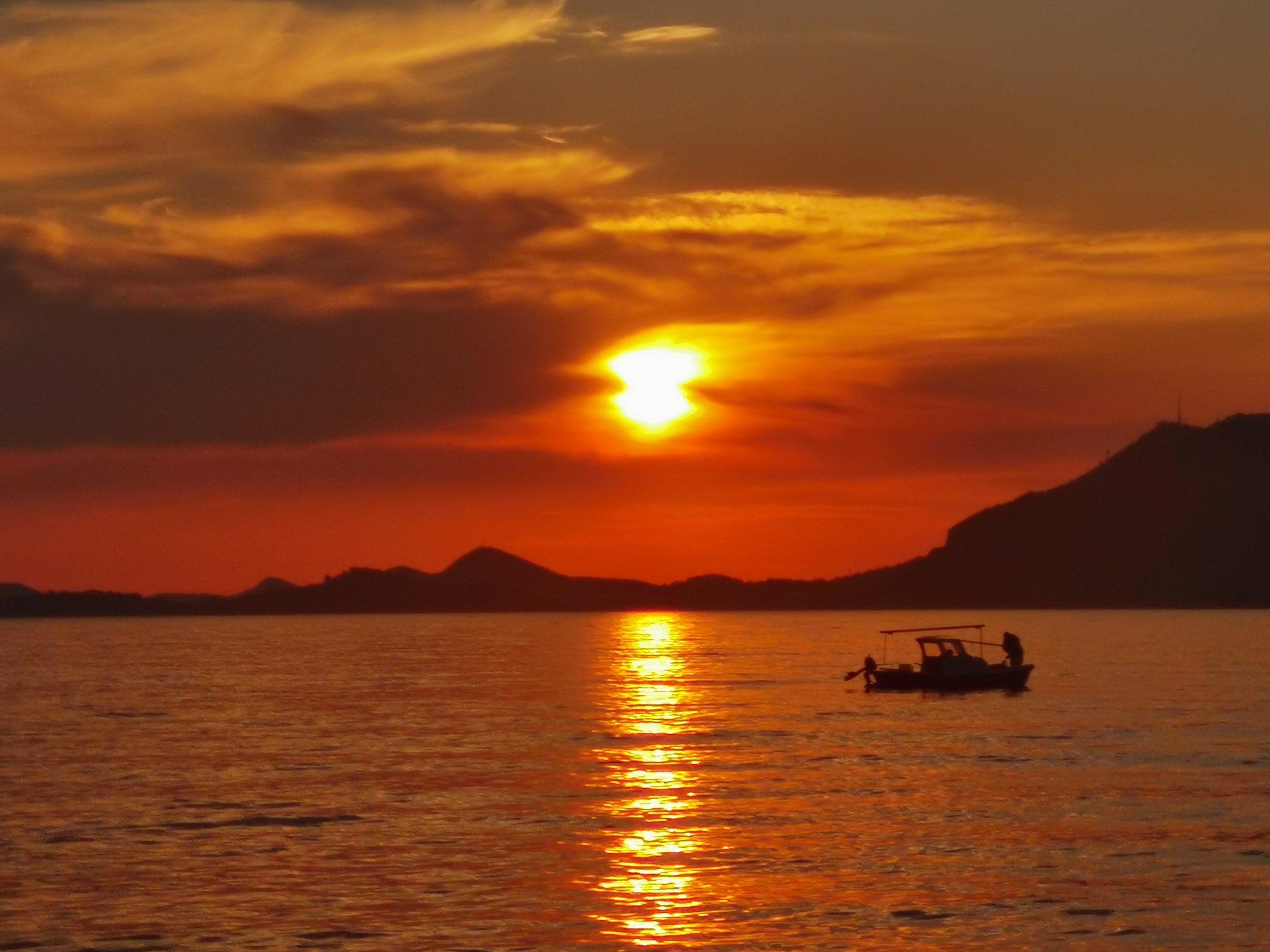
2. Looking back, what were your perceptions and expectations?
We expected to stay here a year, then sail onto Greece and further. There was so much to see that we decided to stay another year to see the rest of the coastline, and a few places inland by car. Then Covid hit. We decided that it was better to stay here, visiting places we knew, knowing people who could help (we got our resident permits after Brexit with A LOT of help from our friend in Split! We have a doctor and a dentist. Andy is currently in hospital in Zagreb after having to wait 2 years because of Covid to get surgery to repair the blocked main artery in his leg. Another story for another time maybe!
3. After 5 years here, how have those perceptions changed. Do you now view Croatia differently?
We didn’t think we would love it here so much that we would still be here 5 years later, Covid or not. Even after 5 years, there are still places we would like to visit. We didn’t realise just how rich and diverse the history is. The people here are so friendly, helpful, and generous. We do think, however, that our friend here in Split might just sabotage us ever leaving the country!!!
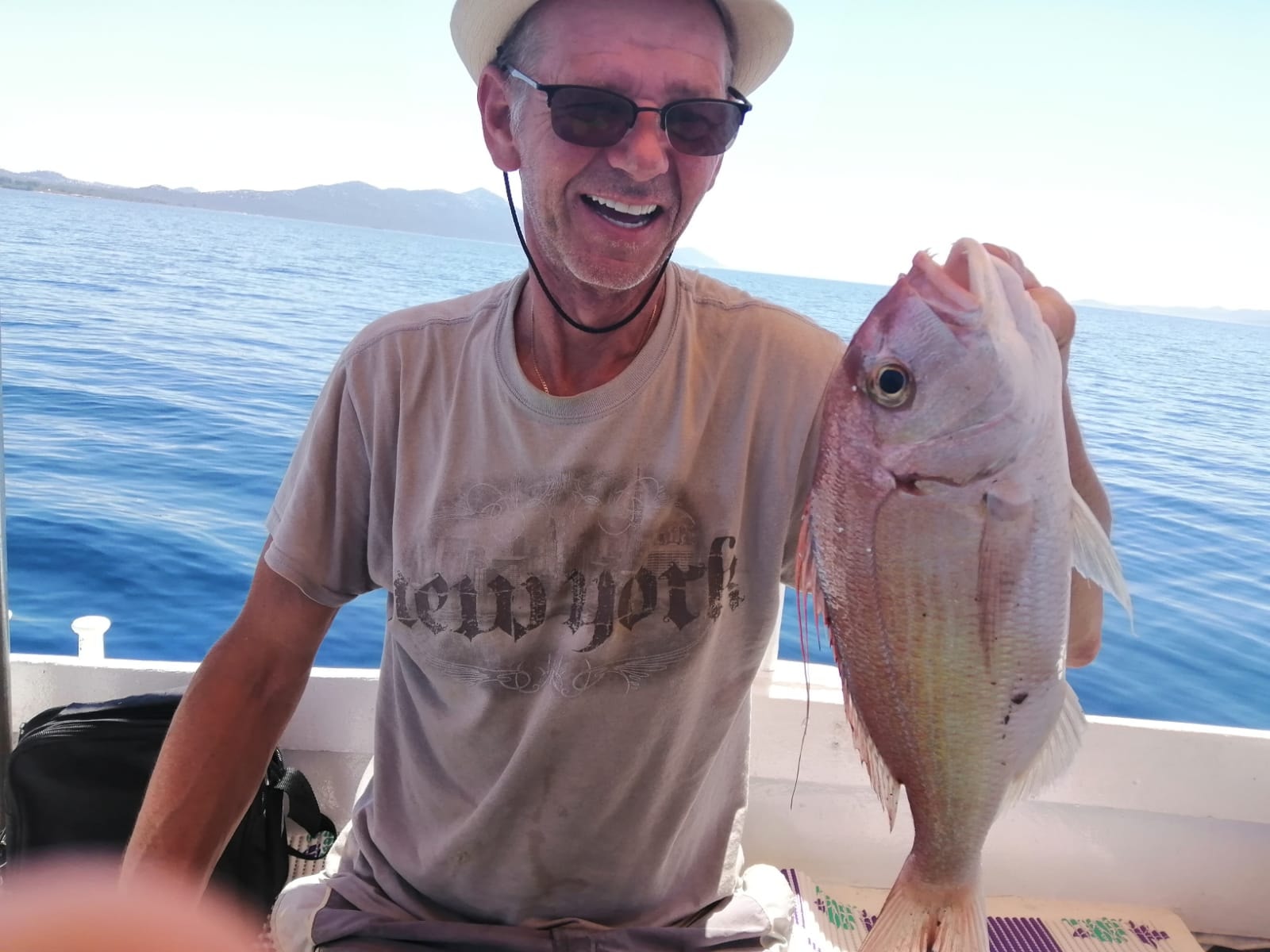
4. After your time here, the 3 things you love most about Croatia?
First: The people. We have made the most amazing friends here, in Cavtat/Dubrovnik, Split, and Zagreb. The best friends you could possibly have. We just wish your language wasn’t so hard. I can speak German and some other languages enough to get by. The Germanic and Latin-based words I can just about handle, even the Slavic ones, but the rest? We still keep trying though!
Second: The food! I am always telling people that the best beefsteaks are in Croatia, and their pizza is better than in Italy
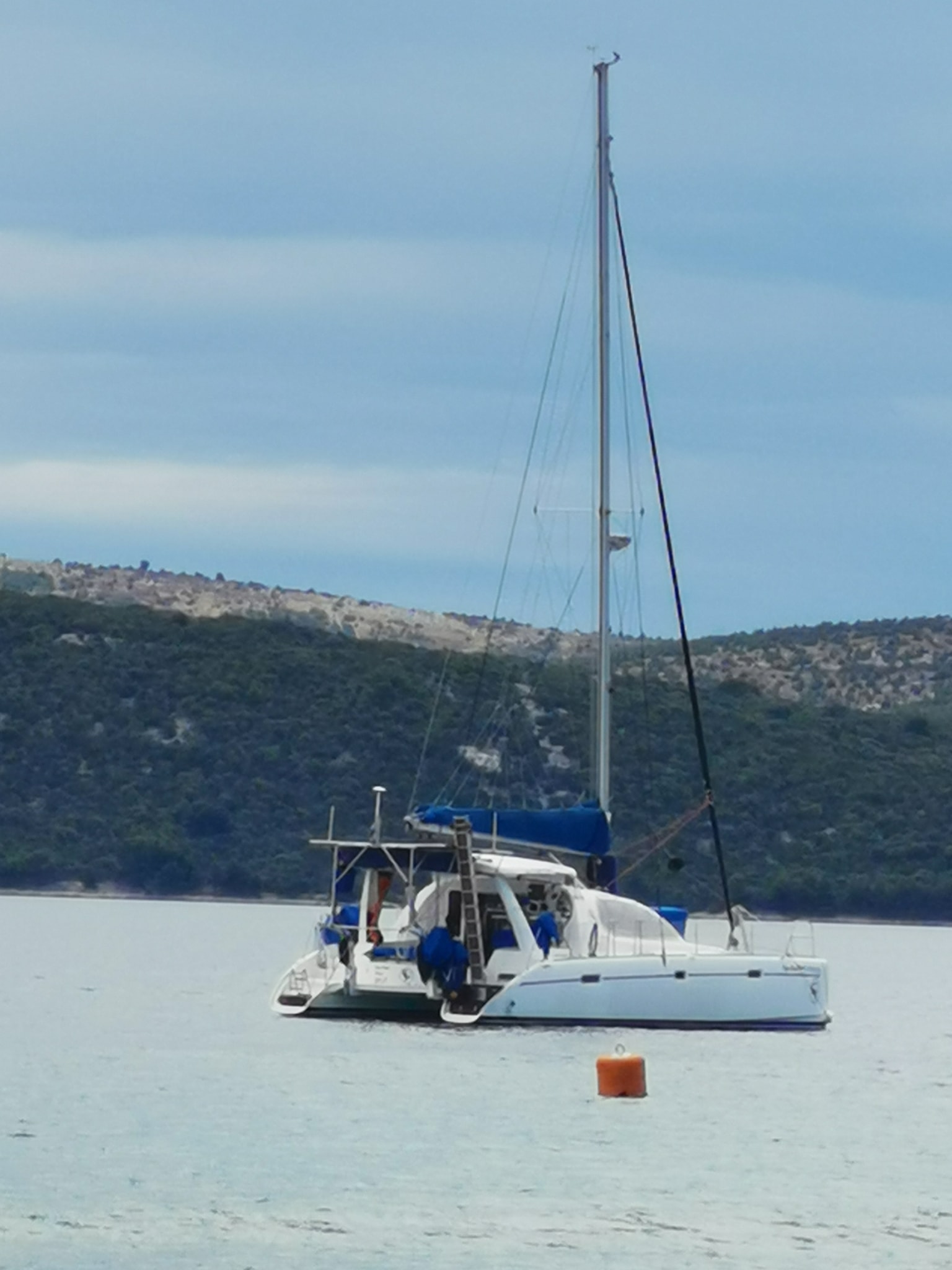
Third: The history. An almost intact Roman arena older than Jesus? Roman artifacts everywhere? Places that look like Venice or Vienna? The history and beauty of this country is hard to beat.
5. And the 3 things you would like to change.
First: Not so many stamps! It’s a common joke of ours to make fun (lovingly) of the bureaucracy in this country. Need a document? Go to 5 different places, and get it stamped in each place. Then maybe you can get or do what you need.
Second: Need your car M.O.T.? Spend all day queueing up to get it passed.
Third: Arrange for someone to come to fix or install anything? Don’t expect them to turn up on time, or even on the same day.
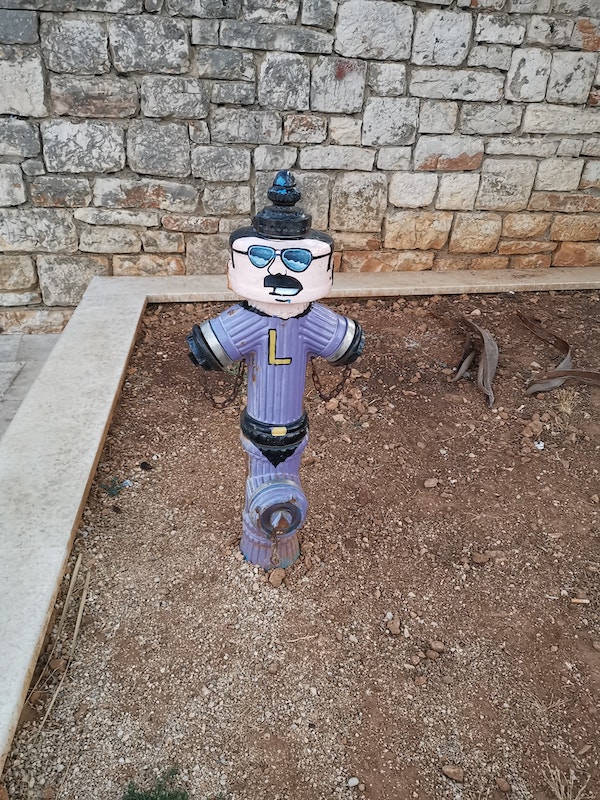
6. Given your experiences, what advice would you give to any would-be expat thinking of making the move?
Go for it! Life is not a dress rehearsal! If you make friends here, they are so kind, helpful, and caring. Just learn that things happen slowly. There is a bit of a “manana” attitude to life here we find both wonderful and infuriating! Think of how long any officialdom should take, then double or triple it. Worth it in the end.
7. The most beautiful place in Croatia, and why?
We can’t really just pick one, it’s a beautiful country! We love Split, it’s alive still in the winter, and not too cold. However, it’s a bit too cold and damp to stay on our boat in the Winter, so for those months we stay in an apartment in Split. It’s great that we can go out to dinner, the movies, and see friends. Lots of great places nearby we can visit by boat or by road. Trogir, Krka waterfalls, Sibenik, Zadar. All beautiful and wonderful. Zagreb for the culture. Tesla museum, museum of illusions.
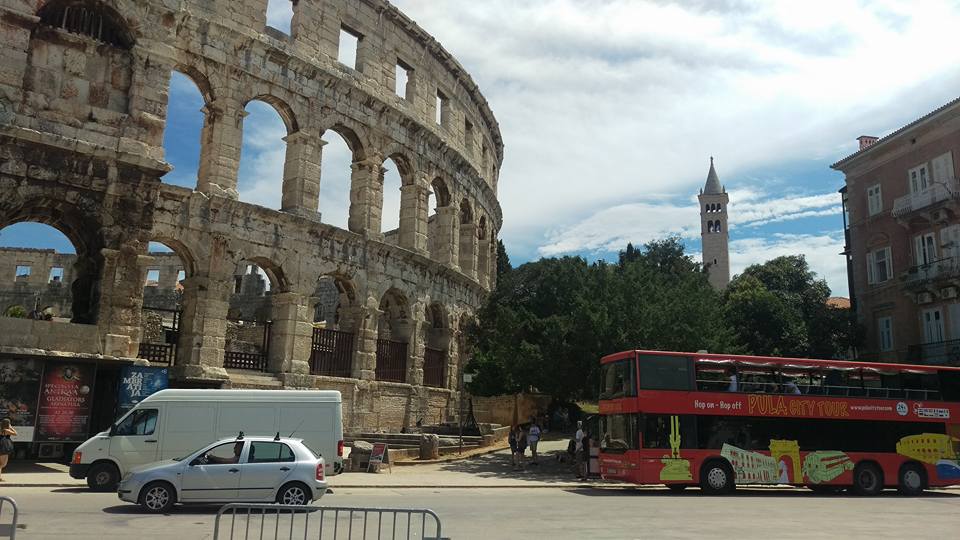
Otherwise, we both love Pula. Amazing that the Roman arena is still so intact, so beautiful! Anchoring in Cavtat, life, but a quiet bay. Visiting Dubrovnik. The views when walking the wall. Sailing by the city to see the walls.
8. Your favourite moment of your time in Croatia?
Again, can’t really just pick one. Watching the sunset from our boat. Never gets boring, and never looks the same way twice. Anchoring by one of the smaller islands or villages and watching the stars. The first time we were invited to a party even though we can’t really speak Croatian. Being told by our friends that we are Split locals, family, like one of them. Fireworks here on New Year’s Eve. Nautical flares, firecrackers, anything goes! Crazy, but fun. Same watching a Hajduk game.
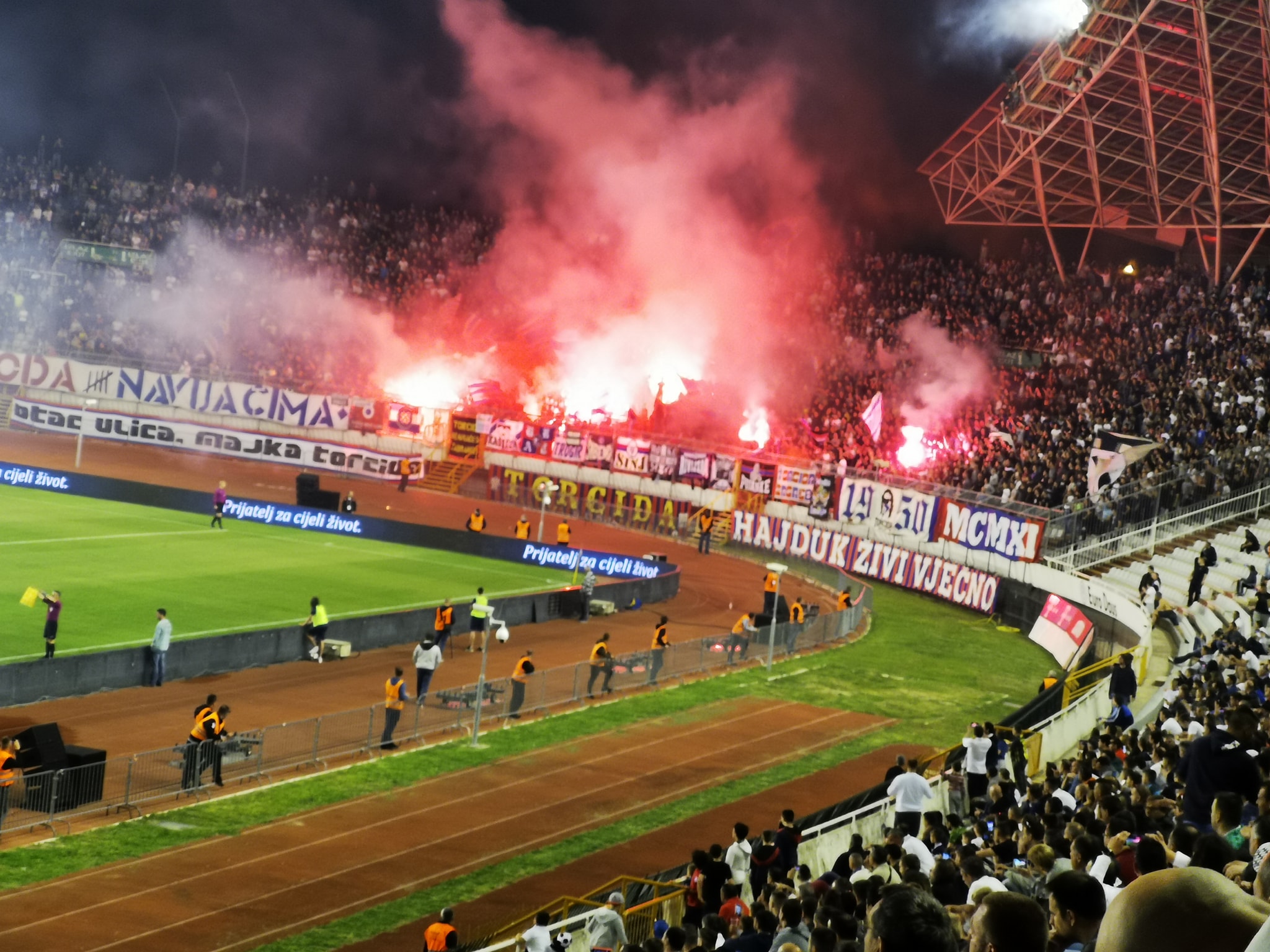
We thought English fans were supposed to be a problem, but the Torcida? Throwing flares on the pitch, setting fire to their seats? Incredible to experience. Anchoring in a bay overlooking the arena in Pula. We are British, on a South African made boat, listening to Tom Jones performing in Croatia in a Roman arena. Can’t get much more international than that!
Also, check out our friend's yacht if you're in need this summer! Yachts | Astarea – #1 Yacht & Charter in Croatia (astarea-yachting.com)
Are you an expat who would like to be featured in this series? If yes, please contact This email address is being protected from spambots. You need JavaScript enabled to view it. Subject Expat
For more, make sure to check out our dedicated lifestyle section.
5+ Years Living in Split: Expat Carla Nemet from the US
May 8, 2022 - In our new TCN series, we uncover the lives of expats that have spent over 5 years living in Split. Next up, meet Carla Nemet!
Two idyllic weeks on a Croatian beach is very different from the realities of full-time living. So what is it really like to live in Croatia as an expat? In a new series on TCN, we meet expats who have lived here for 5 years or more, to find out from them the good, the bad, and the ugly of 12-month living in Croatia. Next up, Carla Nemet from the US.
1. Tell us firstly how you came to Croatia? What motivated you to choose this slice of paradise and how long have you now been here?
My Croatian husband Ivan (Ivica was birth name) & I had left the USA for Central America in 2015. We had some “bumps” in the road of life, and we left all and went there first. HINDSITE: we should have just come here to Croatia, his country of birth. By 2017 we were totally over 90-degree heat & humidity (32.0+C) and the politics in this third world country, were going south for ex-pats.
Ivan wanted to come here, FIRST ALWAYS. BUT, my total lack of learning by hearing, put me off from trying to tackle learning Croatian. I had previous experience with my lack of learning a language! The good new is that we both just were over the moon, once we did get here in May of 2017.
2. Looking back, what were your perceptions and expectations?
Ivan had travelled here when he was 17 or 18 years old with his parents & sis. So, he was totally on board with getting to Croatia. Where we differed was in deciding which city! He wanted Osijek (born in Tanja, outside of it) and the Slavonian region was his first pick. HOWEVER, I wanted the same weather range that I was used to in the Northwest Florida area, where we lived for 18 years prior to leaving the US. So, three seasons, MINUS SNOW! I did win out because I felt being by the sea and having the mountain range behind Split, was the best geography & weather you could ask for, in Croatia! He caved!
3. After 5 years here, how have those perceptions changed. Do you now view Croatia differently?
So, after 5 years, my perceptions have changed most in my COMFORT of Knowledge, about living in Split and feeling part of the daily pulse, of Split. I was very nervous for the two years, the language was part of it, but I was always afraid of offending someone who was born here. Part, was my husband, always stressing this was NOT AMERICA, so don’t expect that. NOW, I have to say, I am so thankful that Split, offers very little of the culture, I left behind. It is so safe, friendly 85% of the time. You just have to make a small effort to greet others & the genuine warmth & sometimes curiosity of me, saves the day!
4. After your time year, the 3 things you love most about Croatia?
3 things I love most: your WATER! Your local grown food & clean raised meats, eggs! Your weather!
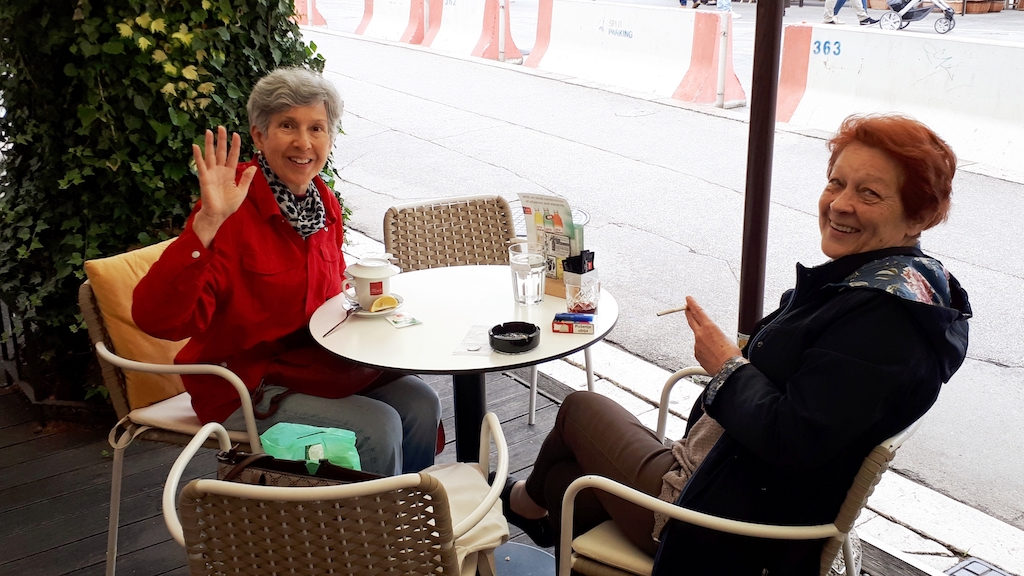
5. And the 3 things you would like to change.
Change…maybe you’re driving and parking issues. I don’t have a vehicle; I love to walk or take your great bus system. HOWEVER, the way most drivers view the roads, is scary!!!! Also, since I am a health-focused individual…I am worried that I see so much processed food in the younger folks shopping carts. That dwindling effort in the kitchen, is what has led to the decline in the average person’s health in the US. Your raw materials are soooooo good, I consider it a crime to not cook from scratch, here.
Also, folks with the dogs, NOT PICKING UP THE POOP! Total health hazard!!!
6. Given your experiences, what advice would you give to any would-be expat thinking of making the move?
Patience! Most of the elderly have only one speed. Polako!!!!
Also, folks stop, dead in the middle of the walking path, so never assume the person in front of you, won’t stop dead in their tracks, for some reason.
I have to say, my husband was on the computer to fb “ex-Pats meet Split” and other government sites, for 6 months, daily doing all the research we needed to get here. Since he was born here, things went fast with paperwork. So, if you don’t have a “Cro-Connection”, I am not up on what the options are. DO YOUR HOMEWORK, and double & triple check your information.
7. The most beautiful place in Croatia, and why?
I personally feel Split has the most to offer. I have been to Osijek, Rijeka also. So, while I haven’t been everywhere, I feel the weather here is the friendliest to outside use, year-round. I totally need to see the sun, almost daily. And I get the grumps, just like the locals, when we reach that third day of rain/clouds in a row! So, I am so right there, with that issue!
8. Your favourite moment of your time in Croatia?
My most favorite moment, still is the trip Ivan & I took to Omiš and the castle in 2018. When we got to the top and surveyed all the mountains, sea around us…I truly felt like I could fly. I took some killer pics, and to this day, it brings back that wonderful day, with my husband of 45 years.
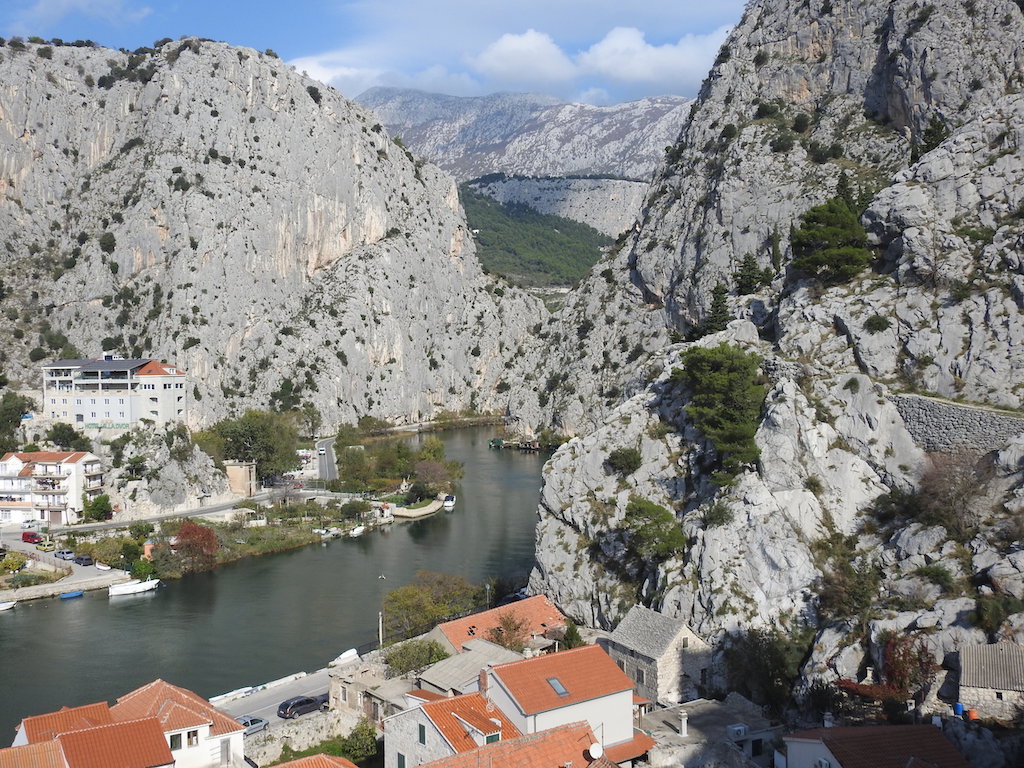
He left for a head start on a new journey, after a sudden health event. We had 3 stupendous years together & his deepest wish was for me to become a “Splitska” (sp?) I will apply for my permanent residency later this year, and will continue on my journey to fulfill that wish, God Willing. Carla M. Nemet
Are you an expat who would like to be featured in this series? If yes, please contact This email address is being protected from spambots. You need JavaScript enabled to view it. Subject Expat
For more, make sure to check out our dedicated lifestyle section.
Spanish Party Team in Split: Spanish Youth Tries the Croatian Coast
June 2, 2021 - One TCN intern spoke to three people from different regions in Spain about their expat experience in Split.
Croatia is an easy county to adapt to Spaniards because they don't really need to adapt a lot. The climate is similar on the Mediterranean coast and the culture has a common Catholic base. Meanwhile, it's not the same thing and they value their experience from living in Dalmatia.
My Croatian boss told me about his mate, a Split journalist, who once wrote that the best city in the world was... not Split, but San Sebastian located in the Basque Country, Spain. It represents a flagrant case, but in general, as I can see, many Split citizens have the positive impression of Spain - either through business trips, or holidays there, or the Camino - and wouldn't mind moving there for some period of time. I spoke with my Spanish colleagues in Split who have done the opposite move and asked them to compare their life in Spain and in Croatia. They came from different regions of Spain: Estela (28) is from the north-west region of Galicia, Pablo (24) is from the Saragosa, the capital of the north-east region of Aragon, and Jorge (25) is from the south-east region of Murcia.
Jamon or pršut?
"In the cuisine, there are many similarities because of common ingredients of Mediterranian cuisine," Pablo starts and enumerates some of it as olive oil, cheese, vegetables. Some foodstuff is more popular for one region than for others. For example, a homemade meal in Saragosa usually contains dishes with green beans, while in Split, it's difficult to find fresh green beans to cook with at home. In Galicia, people traditionally eat more liquid food or soups, while Dalmatians prefer solid foods like pašticada. 'Ajvar' sauce from red pepper is popular in the Balkans and would probably never become a part of Spaniards’ nutrition if they had not moved to Croatia.
Some differences in nutrition arise from the geographical circumstances, for instance, seafood is more typical for coastal sides of Spain as well as Croatia. Dorada fish is bigger in Galicia in the cold waters of the Atlantic than in Dalmatia in the Mediterranean Sea. Other distinctions stem mostly from the generational gap and personal circumstances. Young generations try to keep healthy nutrition with less meat and more fish in spite of the geographical region they live in. Estela feels closer to this generation than to the older one that cannot imagine the main dish without meat, either in Spain or in Croatia.
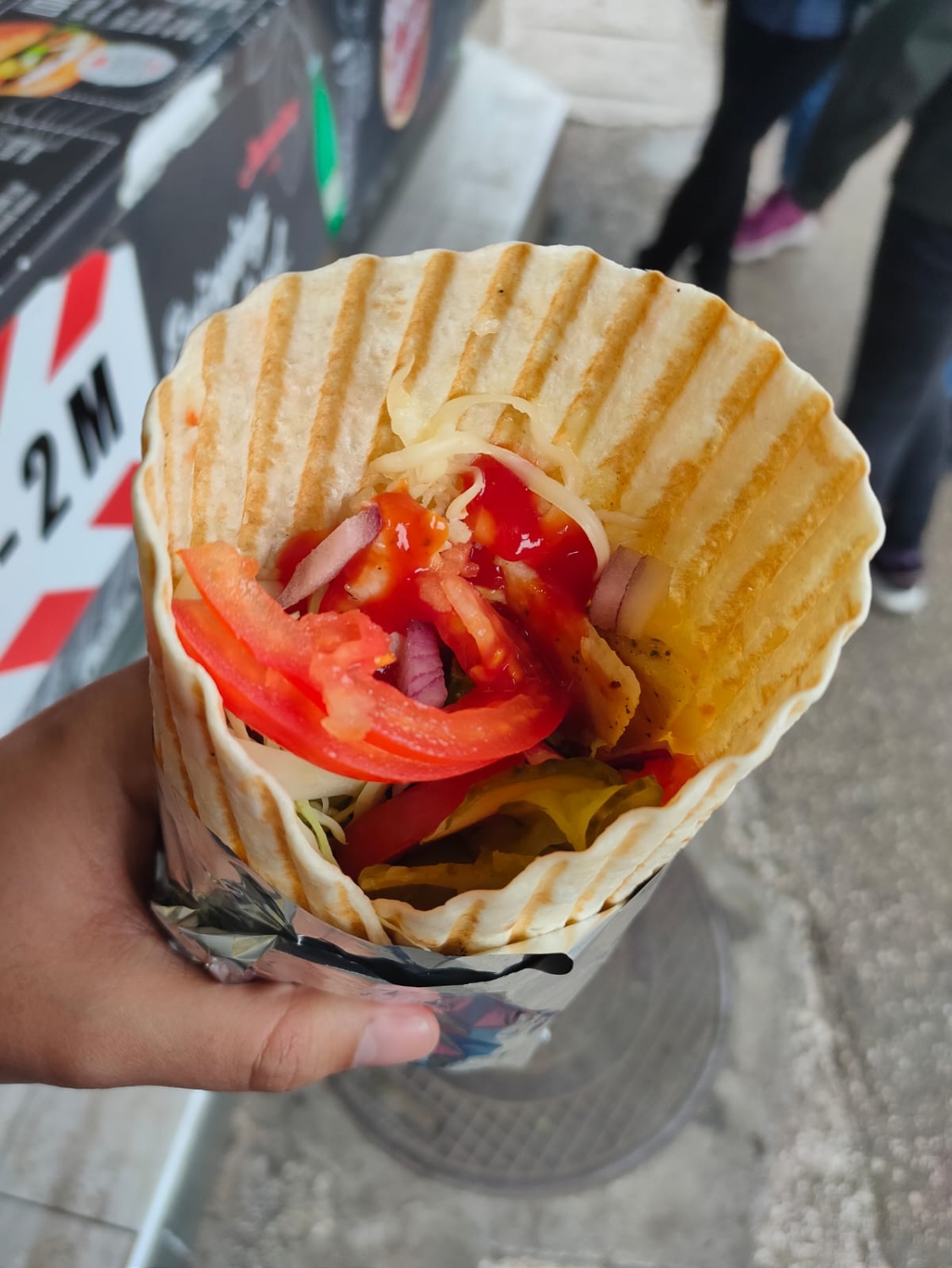
Jorge was surprised by the level of prices in the supermarkets here. It's more or less the same as in Spain, whereas the level of salaries is certainly lower in Croatia. He also misses big chain supermarkets in Croatia like 'Merkadona' in Spain, because it produces some foodstuff under its own brand. Things like 'guacamole' or 'hummus' have a good quality there. However, in Split, there are a lot of products imported from Spain, like 'Lidl' supermarkets with its 'Spanish week', etc. Maybe, you won't find some small local brands of cheese or beer that you're used to in Spain, but you will find an adequate substitution. Looking closer, ‘pršut' is similar to 'jamon', 'kulen' is similar to 'chorizo’, and the like.
Coffee or beer?
Choosing between coffee and beer depends on the time and day schedule for Spaniards. They feel more streamlined in this matter. Breakfast should be before you go to work. A lunch is between 2:00 and 3:00 pm, and dinner is served between 9:00 and 10:00 pm. "In Croatia, people eat when they want!" Pablo and Estela wonder. "Here, people drink more coffee", Estela continues. In Spain, it's normal to have coffee first with your breakfast, to drink one more in the afternoon, and perhaps to have one more coffee after lunch. People usually drink their last coffee at lunchtime, but not at 8:00 pm as people do in Split. Of course, there are some people in Spain who have to work in the evening or have other reasons to drink coffee so late, but most Spaniards prefer beer in the evening.
The culture around having coffee or beer in some public places does not differentiate much. You can enjoy one cup of coffee in a cafe for hours if you're not in a hurry. You can drink coffee quickly and go to work as well. It's typical to have a beer in the evening as people usually finish work, but it's ok to have it even at 1:00 pm as you've already finished your business. Coffee in cafes is a little more expensive than in Spain. Prices for beer in Split bar are also higher, as Jorge and Pablo guess. Estela makes adjustments. A mug of beer is bigger here, and accordingly, the price is higher. In sum, we have more or less the same level of prices in Croatia and in Spain. Also, Split is the second-largest city in Croatia and a tourist city, namely the ‘Croatian Barcelona’. Certainly, in the historic center of Barcelona, a glass of beer costs more money than in some towns in Galicia.
The variety of coffee is broader in Spain. For example, 'cortado' most likely won’t be found in any cafe in Split. Spaniards agree that the quality of coffee is good. Meanwhile, they prefer coffee from the machine or an Italian drip kettle. "Turkish coffee is kind of disgusting to everybody who gets used to Italian coffee," Jorge supposes. A beer in Croatia is less strong than in Spain, however as mentioned, a normal glass or a bottle is 0,5 l instead of 0,33 l. You get less alcohol with a bigger amount. At will, you can get the same thing in Spain. There, if a beer is too strong, people dilute it with sparkling water or lemon juice. In Croatia, nobody does that. But Croatians often dilute wine with sparkling water or ice that seems weird to Spaniards. "If wine is really bad, we do 'sangria' or 'calimontxo' (namely Croatian 'bambus') from it. If wine is good, we never mix it. People would ask why?!” Estela explains to me.
Inside or outside?
Estela and Pablo arrived in Split in late November 2020, a week before the second anti-Covid lockdown. Jorge came in March 2021, a week after cafes and terraces started to re-open after winter quarantine. One might think that Jorge was luckier to come later, but in fact, the Covid restrictions were stronger in Spain than in Croatia. In any case, their experience in leisure time had objective limits because of the Covid-19 pandemic. It's difficult to compare entertainment in your home town and in Split, they say because they haven't seen that touristic crowded loud Split as it was before the quarantine. However, nobody really suffered from the lack of activities here.
Pablo says that when you come for a year, you're more concentrated on the communication with new people you meet here. He was not striving to go to a gym or wherever for any organised leisure time. "I'm not bored now. If I lived here for a longer period of time and had a routine every day, I would probably try. I mean there are some museums, etc." Pablo speculates. Indeed, in this sphere of communication, we were lucky in Split. There are some typical public places for drinking in the afternoon or evening time in every town of Spain, but this kind of social activity is prohibited and the police usually come. Otherwise, Matejuška pier situated on the edge of the Split Riva is open 24h and rarely visited by the police. You can go there almost any time to drink in a company and meet amazing people from all over the world.
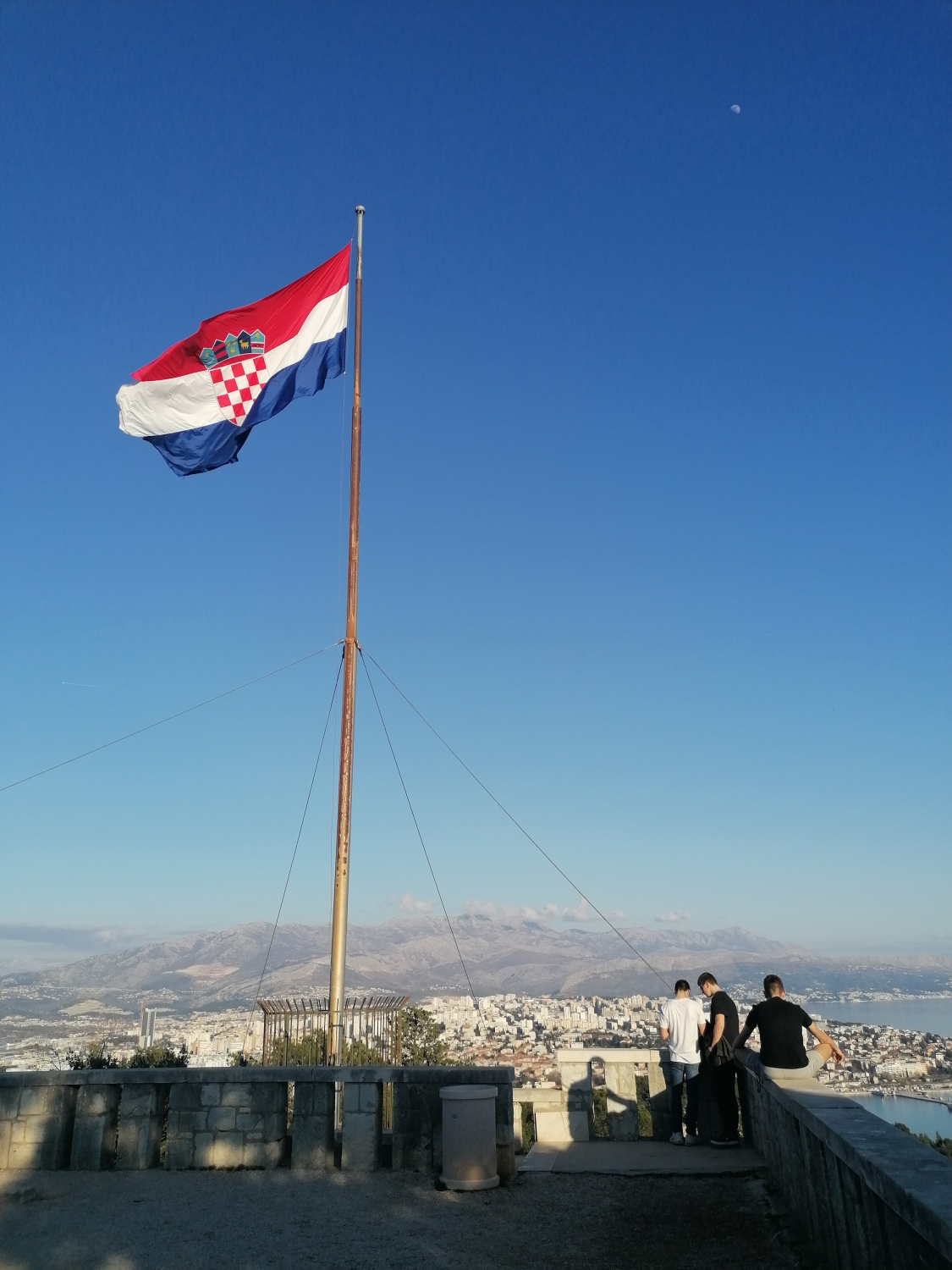
We met people on Matejuška even on the coldest evenings in winter. As a whole, there are fewer activities during the winter and more in summer. Leisure time options in Split are similar to Ferrol, Estela says. As well she prefers to spend leisure time outside. You can go hiking in the mountains or swimming in the sea - fortunately, both options are close to the city. If you fancy it, it doesn't take much time to come by foot to some beautiful nature place in the surrounding area. Split is situated on the hills, nevertheless, the Riva promenade is straight enough for roller-skating and skateboarding. With her friend, Estela found a good place for skating behind the ferry port of Split. Besides roller skates, she also took a slackline and was pleasantly surprised to find another group of slackliners in the city park Sustipan.
They went once to the cinema and theater. In the cinema, it was an American movie - an original version with Croatian subtitles. The fact that cinemas usually show original versions is for sure appreciated by Spaniards. In Spain, movies are mostly dubbed, thus foreigners have little chance to understand the plot. What is even more pleasant, as Estela's local friend shared with her, the summer cinema on Bačvice beach will be showed with double - Croatian and English - subtitles, so foreigners will have all the options.
To speak or not to speak?
My Spanish colleagues as well as I came to Croatia through an international program that affected our community. Almost from the first month, we joined the Facebook group 'Expats meet Split' and it also affected the international diversity of our social circle. Estela speculates: "If I had an ordinary work here, in a public school, for example, perhaps I would have more Croatian friends, and it would be easier to do at the workplace". But anyway, she considers Croats are very open to communication and their way of socialising similar to Spaniards. Croatians are open to suggestions to have coffee together, to go to the beach, to drink a beer in a bar.
Pablo has a more skeptical view of making friends with Croatians. He agrees that Croatians are open people, however, his experience of watching football in the company of Croats suggests that he needed to speak Croatian to have a true Croatian friend. They are nice, they invite you to watch a match together, but finally, they start speaking Croatian to each other and you're out of it, Pablo explains. Estela objects to him. "People of our generation, they speak good English. Of course, if you're in a big company, it'd be better to speak Croatian. If you're in a small company or one-on-one, you would not have problems socialising. You can communicate, speak, explain..."
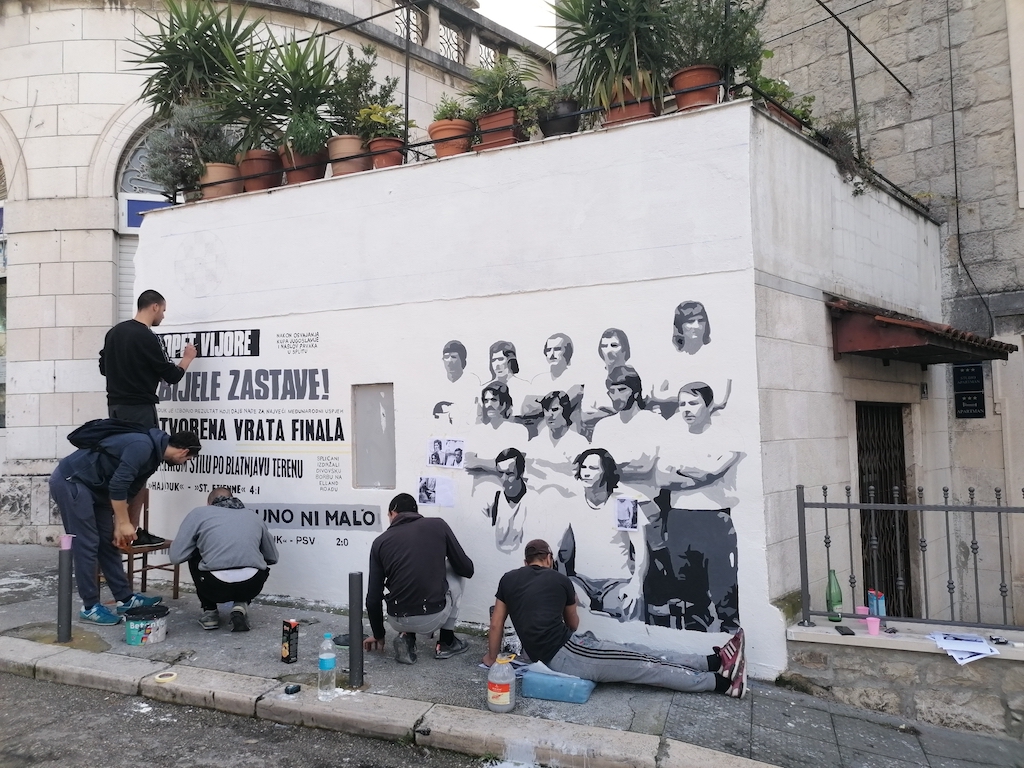
Learning Croatian is a challenge for people from Spain. The grammar is complicated. There is just a little intersection with Latin, therefore you need to learn totally new vocabulary. There are some words without vocals ('krv' blood, 'prst' finger, etc.) which is difficult to spell, some words with sounds missing in the Spanish language which is also difficult to spell ('ljubav' love, 'izviđači' scouts). Some usual words in Croatian sound funny to Spaniards, because it sounds similar to obscene words (‘koliko puta..." how many times...). Certainly, it would take years to learn Croatian properly. So far, my Spanish colleagues in Split speak mostly English and use a dozen of Croatian phrases on occasion.
Spanish people are everywhere. If you want to find them, you'll find them. However, my Spanish colleagues don't really try to find their countrymen. Jorge shies away from the Erasmus students' society that is kinda well-staffed by Spanish students in the University of Split. Pablo's first preference was an international party, but now he doesn't care whether he will join an international or Spanish party the next evening. Estela said that she tried to avoid Spanish society. "If they start talking with me, of course, I talk... If we are in a big company, I try to move to an international circle... I have enough Spanish friends in Spain."
Pomalo or even more pomalo
As we seek to describe the culture of a region by one word, we likely use 'pomalo' for Dalmatia. In the Dalmatian dialect it means 'take it easy', 'relax', 'slow down', 'put it off until tomorrow, 'we will do it tomorrow, 'we can do it tomorrow... or later'. The Spanish word 'mañana' (tomorrow) has quite a similar context to it. In Europe, these concepts are traditionally associated with southern sloths and laziness. "Europe has a stereotype of us that we are really pomalo, but here there's even more pomalo," Estela shares her impression. Pablo echos her: "Here everybody is so relaxed. It doesn't matter whether you come on Monday morning, or Tuesday morning, the Riva is full of people. And these people are not only tourists!" It looks like nobody works in this city!
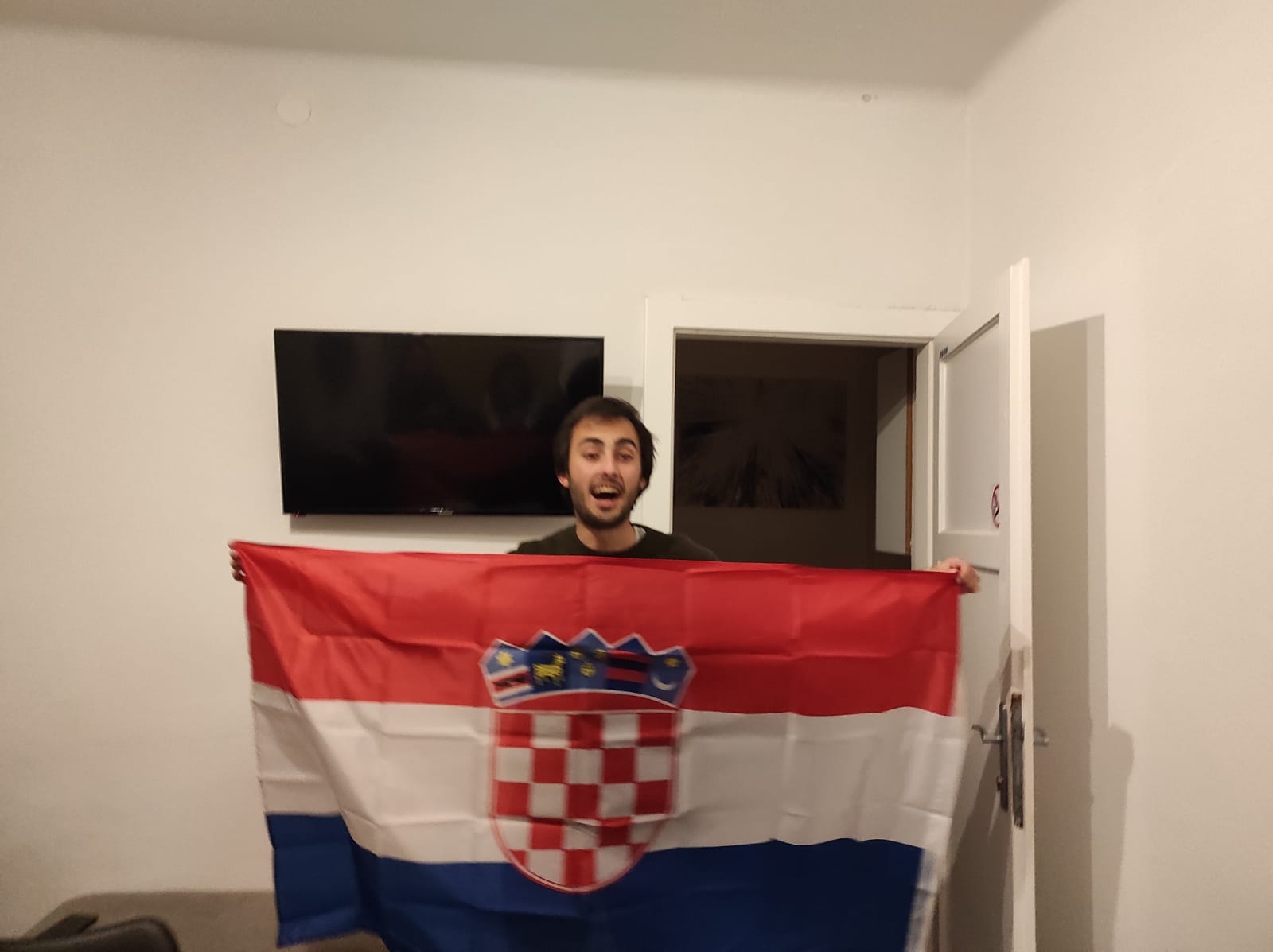
Joking aside, some manifestations of this pomalo mentality at times frustrates my Spanish team. Estela chooses her words to be merciful with our lovely Dalmatia - flexible, not disorganised. Notwithstanding, she would like to see fewer last-minute moves and more long-term plans. Maybe, slowly, but it should come to its objective. The illustrative example is local services. Croatian Post works really slow. Sending something from Spain takes about a month, but in the end, reaches the consignee. One of the bottles was broken, but when they contacted the Croatian Post service, they promised to manage it. Meanwhile, postcards that Estela's mom had sent her via post never came to Split.
Another story has happened with my colleagues during the use of the 'e-bike' service in Split. They bought an annual Croatia subscription in Zadar and should not be charged more. But the bike company began to charge them more for rentals in Split. After e-mailing, the Spanish expats learned that Split (a big tourist city, for economical reasons) and Jastrebarsko (a small town, for a random reason) are excluded from the whole-country subscription. The company returned the money and they changed the subscription to Split only. So, services work, although slowly, whereas you should make contacts and push them, and remind them, but finally, a responsible person helps you, and you get a result. So, you can manage. But, it'd be better to feel more secure from the beginning, wouldn't it?
For more about lifestyle in Croatia, follow TCN's dedicated page.
Swirling Rumors in Expat Village of Split: Stories from a Woman Business Owner
May 20, 2021 - What's it like doing business in the expat village of Split? Monique Laffite shares her trials and tribulations as a female business owner in the Dalmatian capital.
I wanted to start this article with seven Spanish curse words that can easily describe what it is like to be a female business owner in Split, but I’ll leave the profanity to the gossip corner. Lord knows they are half of the problem. That’s how I felt forced to write this article: pure gossip. So, before you lend your ear to those with the colorful stories about people’s lives, and how they should be punished for them, I ask you to hear me out.
It is no secret being a female business owner is hard. Pair that with a small town, and then add an even smaller foreigner community, and you have a recipe that would send even the strongest person running away from this city. A friend of mine said the expat community can sometimes be the ‘selo within the selo’. She nailed it this time.
I was born and raised in a small town in Honduras, and I am no stranger to small-town gossip, or tactics. In my country, you settle things the old-fashioned way, face-to-face, or with a machete. I am kidding, most of us carry guns ;).
Open a business as a woman and be ready to constantly get asked to ‘go get the big boss’, when I speak to vendors or people interested in doing business with me, which means: go get the man in charge. You need to explain yourself that even though you are a female that you are the big boss. I smile, give them the short version, turn around, and roll my eyes.
When someone cheats you and you demand an explanation for why, they call you hysterical (or when you look like me, ‘a crazy Latina’). When you demand to get paid for your graphic design work and they only give you 25% of your agreed-upon price, they call you names and even threaten your legal immigration status, because you are willing to fight for what you have earned. Although things like this happen all too often, you are never prepared for the meaner, ill-spirited people and rumors that come from your own community.
I have played the part of crazy Latina, uneducated immigrant, helpless woman, among others, but in my most recent and cruelest role, the battered wife. Yes, this time, they have made me out to be the victim of a domestic abuse situation, spread this horrible rumor to the expat community in town, and then went ahead and attempted to punish me and my business as the battered wife.
I am part owner (with a British gentleman) of a small Mexican restaurant in Split called To Je Tako, and I was surprised to find out a group of foreigners boycotted my restaurant. When speaking to one of the digital nomads in town, we found out the boycott was put in place to punish the ”American owner” based on an embellished tale about a past owner and myself. Ironically, I am the victim in the tale and the boycott is punishing me, the supposed victim. Victimizing me, shaming me, aiming to destroy my hard-worked business. Is it because I am a woman? My gut tells me yes. The times of #metoo & #girlpower, are outshined by the ever so classic Split foreigner gossip.
Marvin Gaye said, ‘believe half of what you see son, and none of what you hear’. Maybe Marvin spent a couple of days in Split back in the day.
How do you react to something like this? I won’t lie to you and tell you I laughed this off and felt above it. No, I am not ashamed to say I cried. I screamed. I cursed in three languages. And when the dust settled, I did what is ever so familiar to us women, I found I had to explain myself by writing this piece.
I did not write this article to be able to explain my personal actions, my life, my decisions, or the fact that this rumor is not true. We are not friends, I’m not twelve, and this is not my diary. I am writing this article because at the end of the day, I am a business owner with responsibilities to my staff, to my landlord, to my vendors, and my business partner. I need to explain that none of them need to be punished because of this rumor.
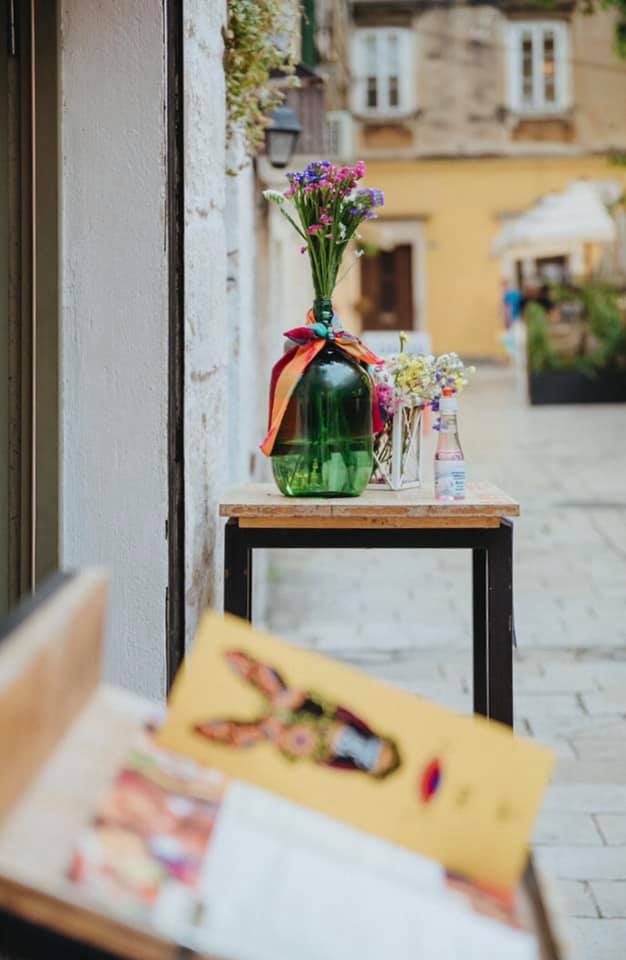
I have been doing business in Split since 2014. I opened a tiny bar doing pretty great things at the time. We did charities for the homeless, animals, an orphanage, art exhibits with young local artists, and became the first stage to a lot of the small duets and bands you listen around in Split now. We pushed gay rights, supported local businesses, hosted famous karaoke nights and Monday quizzes, and even closed it down one Saturday evening to celebrate the civil union of two girls in love (only the seventh such ceremony in Croatia at that time).
Today, I buy my table linens from an organization in Honduras that promotes women workers, cook for local soup kitchens, support animal charities, and hire local artists. Our staff is racially diverse, LBTQ-inclusive, loyal to the bone, and I would have nothing without them.
Why do I feel the need to tell you all this? Because actions speak louder than words.
Writing this article was not pleasant. The first version looked like a ransom note. But ultimately, I wrote it to let people know how boycotts often affect the wrong people (especially in this case, being it a malicious lie). You punished my staff, my vendors, and my business partner—but never an “American wife-beater”. It took me one day to figure out who started this rumor, and realized how personal it was. To the group of men that started this, pick on someone your own size. The people behind To Je Tako deserve none of this. If you know me, or any other woman in this situation: back off, because we will go down swinging. It is time to let sleeping dogs lie.
In the domestic violence rumor, I am the battered wife. The boycott does not affect the non-existent American owner, but me—the battered wife owner. If the rumor were true, the people saying the rumor would be re-victimizing me—the battered wife. Everyone knows that there is no American involved anymore in my business. They know every lie they tell, every time they laugh about proliferating the lie, their goal is more than to affect my business, but to hurt me as a supposed battered wife. Imagine if this were true how every Kuna I lost I also had another band-aid ripped off the wound. This boycott is more savage than monetary and does not even hurt the person they are told it would hurt. So why do you keep listening to it?
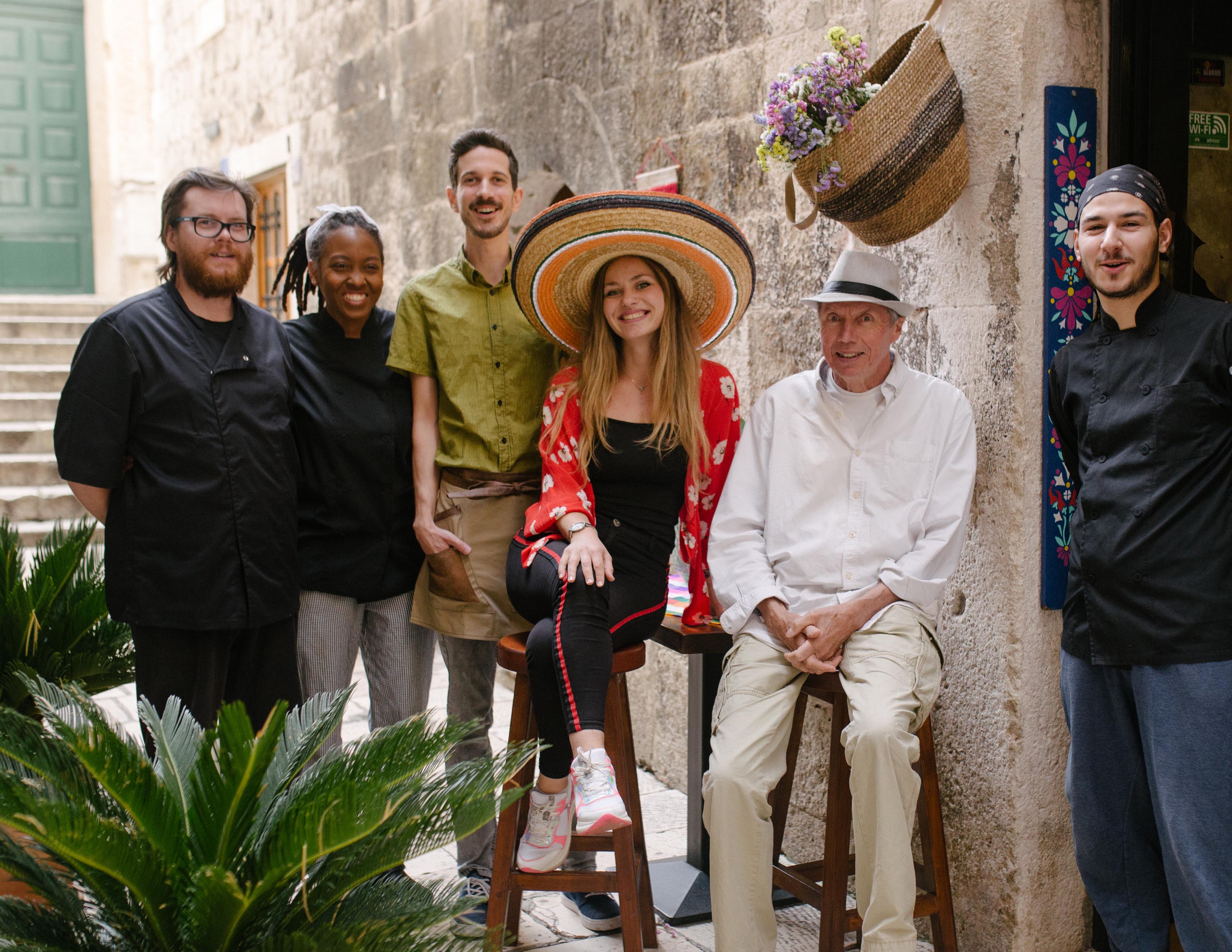
If you find yourself lending an ear to local gossip, take a second to see who is trying to entertain you with it, and consider the effect of your actions after listening to it. In the meantime, we will be the ones next to the Temple of Jupiter, selling good food, and listening to none of it.
To follow more on business in Croatia, follow TCN's dedicated page.
From Russia to Croatia: The Young Expat Experience
May 21, 2021 - Four Russian girls moved from the two biggest cities in Russia to Zagreb and Split and shared their experience of living here. A look at their experience from Russia to Croatia.
Four girls including the author of this article collect their experiences from a long-term stay in Croatia and compare them with life in Russia. Three of us are from Moscow, one is from Saint-Peterburg. Two of us have lived in the biggest Russian cities since they were born, two moved from a little town in Siberia and the capital of Kyrgyzstan (ex-USSR). The girl who arrived first spent more than a year in Croatia. The girl who arrived last spent 6 months here. Dana, a project manager, (27) and Daria, an IR-specialist and human rights activist, (28) are based in Zagreb, while Nellia, an English teacher, (25) and Anastasia, a journalist, (25) live in Split.
The Weather
"The weather is great. I'd like to live here all the time," Daria living in Zagreb says. In comparison with average temperatures in the big cities in Russia, the weather in Croatia is much warmer and a lot sunnier. In Split, we have an even better perspective, because here we enjoy all the benefits of a Mediterranean climate favorable to health and good mood as well. But on the Croatian coast, there are a lot of winds, it's much stronger than in Moscow. When the temperature in Split is + 2-3°C degrees above zero and the 'bura' blows, the cold north-eastern wind from the Velebit mountain chain, it feels colder than - 10°C degrees and no wind in Moscow on the same say! For example, I remember exactly such a situation on 26 January.
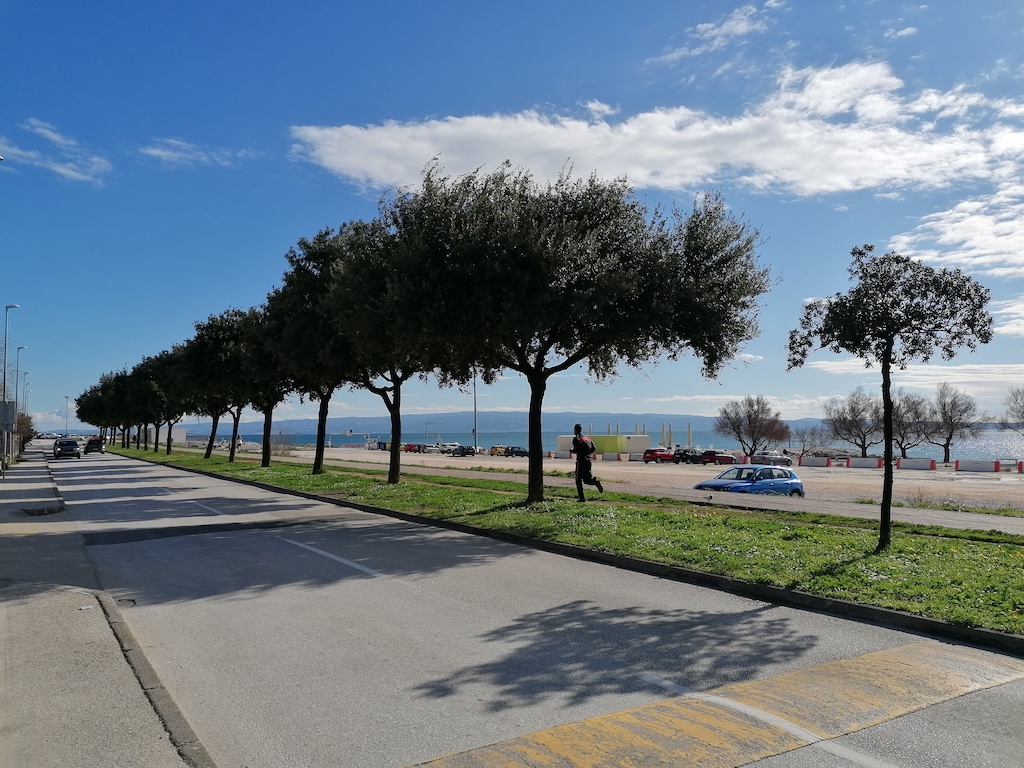
Other times we know from our sisters it was hotter in Moscow than in Split on 15 April or, for instance, on 18 May, i.e. about +31°C in Moscow versus +23°C in Split. But in general, during a Moscow spring, this kind of heat longs several days and in Split, it comes as stable warm weather. If you live here for a long period time, you'll agree that it's warmer here than in Russia!
I've never complained about the summer heat. For sure it's taken easier here between a sea and mountains than in Moscow among skyscrapers. But for people from the northern regions of Russia, summer in Croatia is quite challenging. Dana shares that during summer in Zagreb, she rarely leaves the house before 6 pm, because it is 38°C outside. Fortunately, she works remotely.
Food and supermarkets
Food talk among us hasn't identified anything special as well as problematic. A lack of plenty of dairy products we have in Russia probably contributed to Dana's cultural shock as she'd just moved to Croatia. But as soon as she found that the Croatian item 'svježi sir' (fresh cheese) is quite similar to the cottage cheese we often eat for breakfast in Russia, it isn't a problem anymore. Nellia who adheres to healthy food, was pleasantly surprised that in Split it costs less for her. She also had no difficulties finding components of her nutrition in local shops, like her favorite Russian grain 'grechka' (buckwheat) in the Tommy supermarket down the street, fresh vegetables at the open market, chicken sausages in the Purex shop close to the open market, etc.
We have a contentious relationship with the Croatian open market. From one side, even my first walk along its trading rows was very sobering. I started thinking about seasonal products again, I started favoring local products. When you live in a metropolis for a long time, you completely forget that salad with cucumbers and tomatoes is not really a winter dish. In Moscow, you have everything imported from everywhere year-round. On the other side, I can understand my friends from Zagreb who usually buy vegetables and fruits in the supermarket. If you live far from the open market, it probably won't be a part of your routine. If you have a fixed schedule and work in the mornings, the open market is also not your sort of thing, because it closes early. Nellia and I are indeed fortunate to live in 5 minutes from the open market in Split.
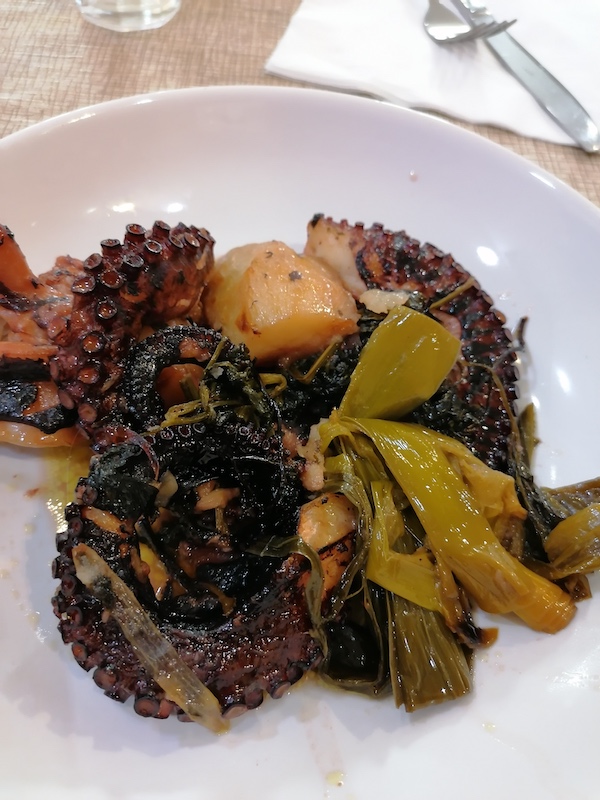
Concerning dishes and recipes, we are not really in Croatian cuisine. All of us work and cook for ourselves so that we prefer easy dishes which can be cooked fast. In fact, we've noticed that we began to cook more Russian dishes here than in Russia, because it just takes less time to cook what you've already cooked a hundred times. However, when we go to eat outside we always favor Balkan/Croatian/Dalmatian cuisine. We stand united in our love of 'burek' in everyday life. When we go to a restaurant or visit our Croatian friends, I've already got my TOP-3 favorite dishes: 1. 'hobotnica ispod peke', 2. 'Dalmatinska pašticada', 3. 'bakalar na crveno'.
Coffee and cafes
A handbook for expats that our host organization sent to Nellia and me before we arrived in Split mentions: "Everywhere in Croatia coffee drinking is a ritual. In Split, it's a way of life. In Split, people drink coffee 5 times a day," said our supervisor as we just arrived. Therefore, the two of us were prepared for coffee drinking. Daria had been living in Serbia for a year before she moved to Croatia, so she also knew about the Balkan way of coffee. For Dana, it showed up unexpectedly. It had an especially strong effect in light of the fact that she doesn't drink coffee at all. In Russia, we usually drink tea, although coffee consumption grows because of globalization.
Dana managed to find a solution. When they go to a cafe with friends, she orders hot chocolate in winter and orange juice in summer and likely tries to sip it slowly. "It sounds like a kind of stereotypical anecdote for my friends in Russia, however, it's true. Once I saw a guy drink coffee for literally 3 hours!" Dana remembers. My observed record was about 2 hours of coffee drinking, but I know for sure that after it, my companion went to drink coffee with his colleague.
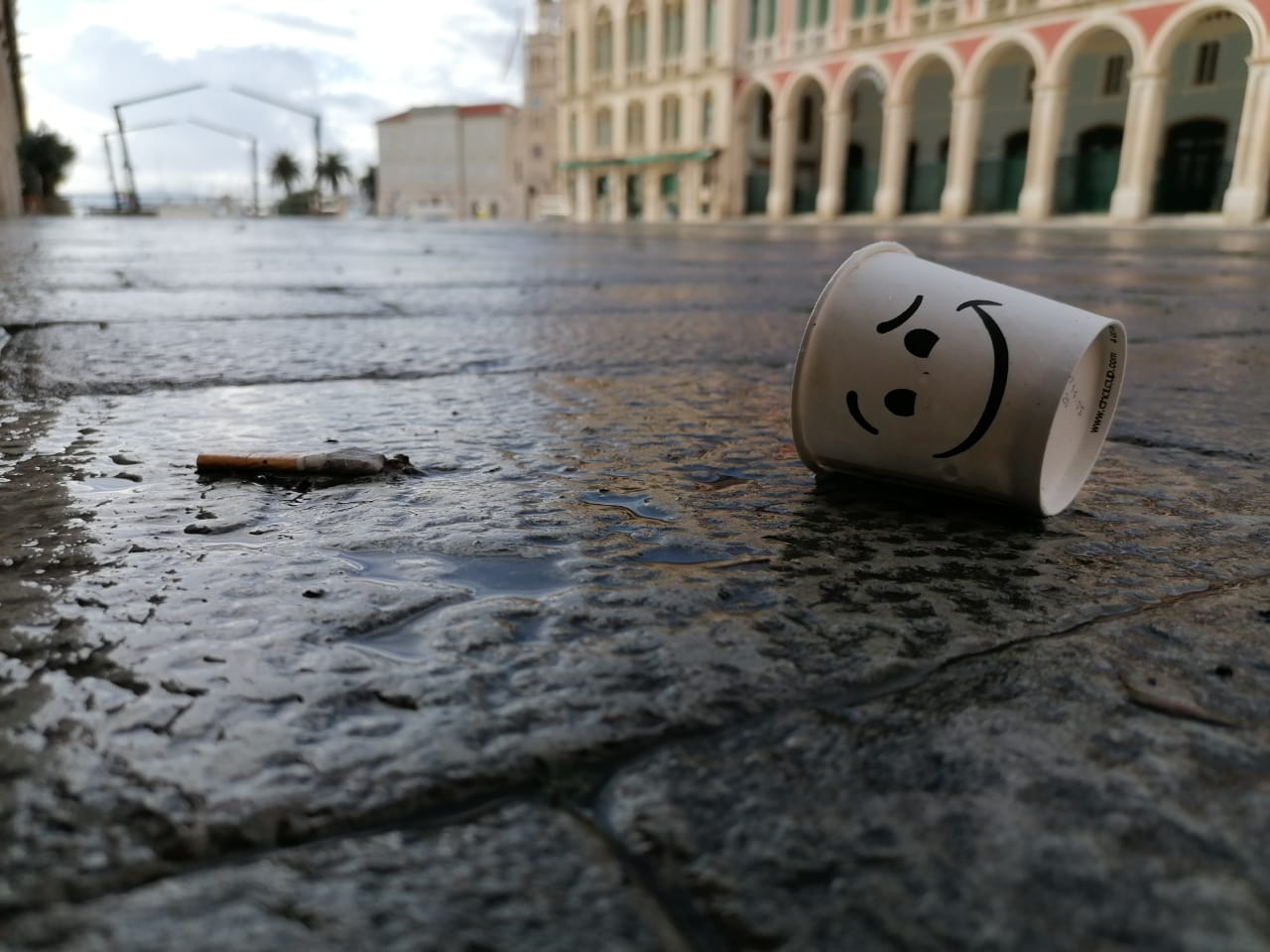
Seriously, we agree that coffee drinking is a charming and useful ritual. Daria shares that she likes to see the cafes full of people, even older people, as she goes to her office in Zagreb at 9.30 am. The remark about the older people is important because, in Russia, we don't usually go to cafes or public places and in a way, they're excluded from a part of social life. In Split, I really enjoyed how coffee rituals survived quarantine. People just took coffee to go and sat on the Riva. Actually, on Monday morning, there were so many people drinking coffee close to the sea as if nobody was working in this city.
Being a bit picky,, we'd say that there are many more trendy cafes in Moscow and Saint-Petersburg. There are cafes with a concept, cozy lights, interior design, a variety of sorts and methods for preparing coffee (machines, Chemex, cezve, etc.), plenty of amazing desserts that are perfectly matched with coffee. We don't lack it a lot, but in our opinion, it'd be a great growth zone. We want dessert!
Housing and household
We avoided a majority of housing problems because our organizations rent apartments and pay housing and communal services for us. For Nellia and me, the biggest discomfort was an absence of central heating during the winter. In Russia, we are used to heating inside the apartment, because the energy is cheap and the communal service works well. I used to wear only lingerie in my apartment in winter. And here in Split, I wore two t-shirts, a sweater or pullover. I slept under three blankets. Meanwhile, I never felt cold outside, because the winter in Split is warmer than in Moscow. The problem was that we lived in an old house, the only source of heating was the air conditioner in the room working 20/24 hours a day. We turned it off for 4 hours only to give it a technical break.
Split is a tourist city and quite often, an apartment owner asks you to leave at the very beginning of the tourist season, because they prefer to rent accommodation to tourists every day than to residents per month. It just brings more income. We were warned in advance, but anyway, moving from one flat to another creates some temporary inconvenience. A matter common for Zagreb and Split is that if you're one or two, it's much easier to find an apartment, than if you're a 4-5-6 group and everybody needs some private space.
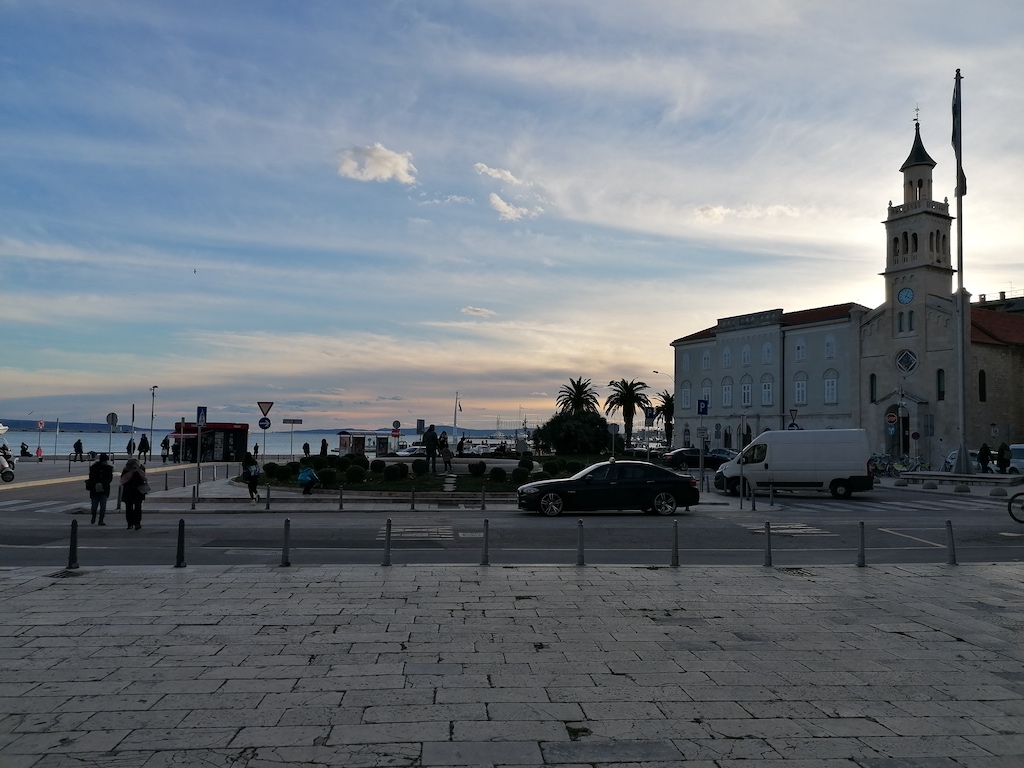
As for the household, we didn't meet any obstacles to find and buy things we needed. One funny story happened to me as I was buying a 'French press'. In my family, we always used this kind of press pot to brew tea. I mean to brew tea for a whole family, whereas for one person it's usually done in a cup. My mom's sent me Russian winter biscuits and a bag of herbal tea. Then I needed French press to brew the herbs and offer them to everybody in my community here. So, I went to the hardware shop nearby, I bought a French press and went back home. Then I realised that it didn't hold a piston in the upper position and went back to the shop to exchange it.
"I would like to exchange it because it doesn't work," I said. "How is it possible that it doesn't work? How does it actually work?" the seller wondered. "What is this thing intended for?" a second seller added to the conversation. "I know how it works, let me try!" a sales consultant shouted from the opposite side of the room and ran to us. For several minutes I've got a feeling that I'm not in southern Europe among the other Slavic nation who looks and speaks quite similar to my nation. I've felt like I'm among the indigenous people of Patagonia with whom I don't have much in common, and I've just re-invented the French press for them, thus they are now surprised and excited at the same time. In the end, all together we checked the boxes with French presses in the shop and looked for a stable piston in the upper position. I came out of the shop with the best working French press!
Services
First and foremost, our pain is mobile service and the Internet. It costs me here double more money (67-75 kn) than in Russia (~30 kn) for 200 minutes and 10 GB a month. While it's cheaper than the average Croatian pays, we have to use a kinda lifehack - we change SIM cards every month. Daria found this way first and then shared information with Nellia and me, otherwise, we'd pay three times more than in Russia. My boss kids with me that I'm a secret service agent every time I send him my new number. Dana adds that it's also annoying to buy 'bonovi' for the mobile account in the stores and pay commission, whilst you can do it online and without commission through your bank's mobile app in Russia.
Two of us had an experience with Croatian Post as we were waiting for our packages from Russia. From the Russian side, we have total trackability, we can watch it in the app of Russian Post. From the Croatian side, there isn't such trackability. Daria's parents forgot to put the number of the house on the package. As a result, Daria spent significant amounts of time trying to get her package from the local post office, sorting center, and Croatian customs. "The matter was, for instance, that once I asked different post officers in the same post office, they gave me contradicting info," Daria explains. It looked like there is no central informational system where every officer can check the info need.
Nellia and I consulted a lot with our local friends, but finally, we couldn't find a good beauty service for an affordable cost. Dana was the one who tried our medical insurance, and it worked nicely in Zagreb: there weren't queues, the doctors spoke fluent English. Daria probably uses delivery services more often than us, so we agree with her that it works and costs almost the same as in Russian cities.
Travelling and entertainment
Our concepts of travelling while you're based in Croatia differentiate a lot. The reason is that Dana had arrived before the Ccovid-19 pandemic began, and the rest of us came between the first and second waves of quarantine. "Well, travelling... I've been to Italy three times, several times to Vienna, once to Slovenia, to Serbia and Montenegro," Dana enumerates quietly as I ask her about travelling. I listened to her with my mouth wide open. From now it's complicated to imagine such freedom of travel without PCR tests and self-isolation. However, it seems according to Dana that in normal times, Zagreb is a good base to be near to these timeless popular travel destinations like Vienna and Venice.
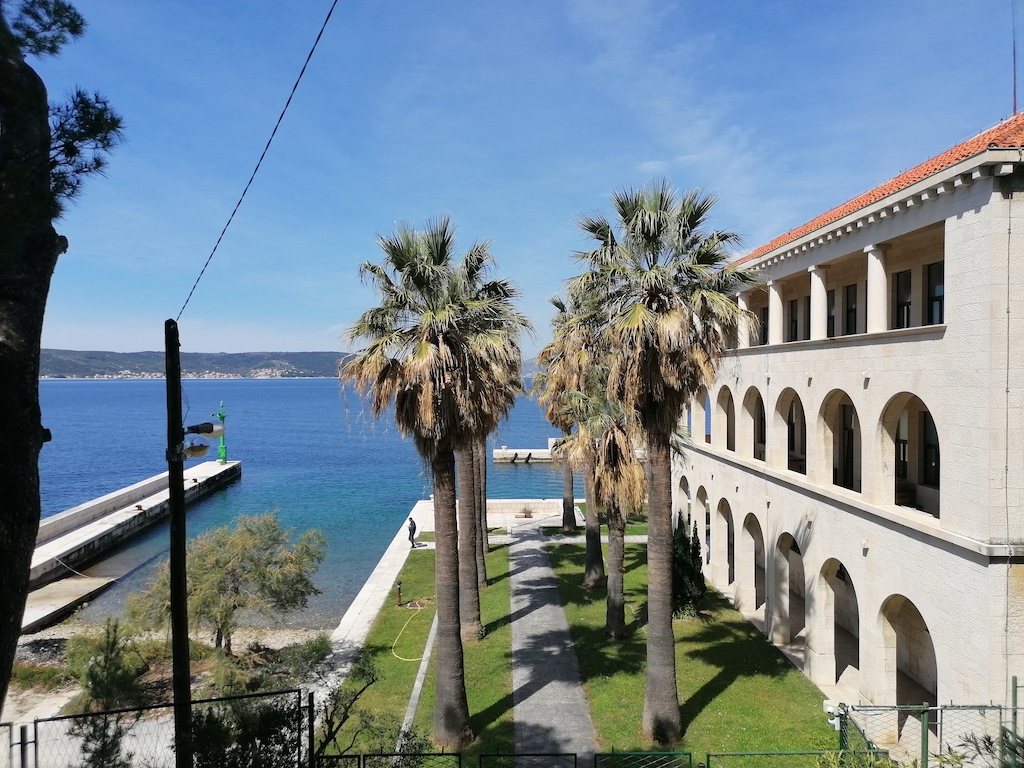
When I arrived in Split at the end of November, it sounded impossible even to go to Bosnia and Hercegovina. Quarantine challenged us, but eventually, we're grateful to it. We've had so many amazing trips around the country, we've seen fantastic views we'd never visit otherwise. I was impressed by the winter trip to Knin and to the source of the Cetina river. Nellia experienced a true authentic Dalmatian dinner and family atmosphere at her friend's house in Omiš. Together we discovered Dalmatian islands, and actually, I don't know what activity could be better. Daria would be a good promoting agent for Sljeme for everybody who asks about interesting destinations in the vicinity of Zagreb. She also could perplex even some locals telling about her hiking on Zeleni vir near Varaždin.
There was more entertainment before Covid as well. Dana managed to go to dancing classes in Zagreb. Although she didn't find classes of her favorite 'jazz funk' style she practiced in Saint-Petersburg, her Croatian friend introduced her to partner dancing and she liked it. To date, I've abandoned dancing, because all the classes were closed. Our experience with movies is quite similar in Zagreb and Split. We prefer old movie theaters - as Tuškanac or Zlatna vrata, which shows timeless classic and independent movies. There is a wide-ranging and international programme there. Tickets are cheaper than in Moscow or the usual cinema situated in some shopping mall here.
Daria warns expats about choosing a movie where the action happens in some highly cross-cultural circumstances as in 'The Mauritanian' she watched recently. The matter is that the original movie is in English, but in some moments characters speak their mother languages like French, etc. And in such moments you cannot understand anything, because all the subtitles are given in Croatian. However, this is not the majority, and movies in Croatia are very friendly to the non-Croatian-speaking public.
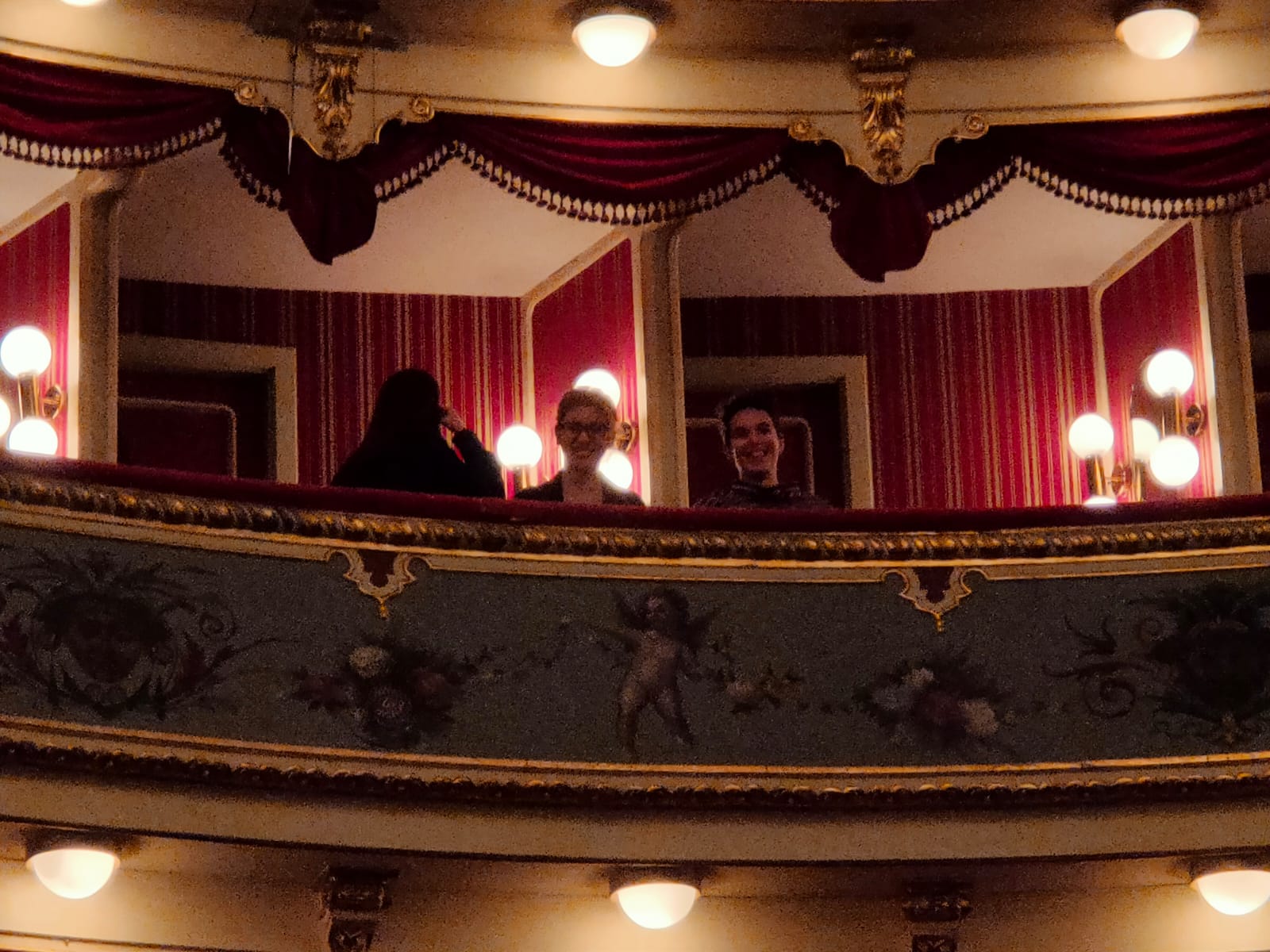
The situation is the opposite in the classic theaters. Shows are mostly in Croatian. Daria speaks Croatian, therefore she goes to a theater in Zagreb at least once a month. Meanwhile, we agree that if you're this Russian 'theater-goer', you'll for sure understand a plot, because our languages and repertoires intersect enough. So that, in this sphere being expat from other Slavic counties is an advantage. Another advantage is having a Croatian friend who will advise in choosing the show, because to manage it by yourself is not so easy.
Our Croatian friend from Split who studies in Zagreb said to us that theater is much better in Zagreb than in Split. Thus, we don't go to the theater in Split. In fact, with Nellia we tried the Swan Lake ballet at HNK (Croatian national theater) in Split. It was... I'm going to put this as delicately as I know-how, not what we expected to see with our Russian-classic-world-famous-ballet background! Here a ballet is a less disciplined and more relaxed art that is closer to modern styles of pop dancing.
Integration in the community
Since we went to Croatia through an EU-programme, our community from the very beginning consists mostly of expats. Of course, we communicate with a lot of Croatians at work. While quarantine measures are still in place, we meet Croatians not only at work, thus, I'd say now our community is mixed. We'd never tried purposely to find Russians here. Thanks to the programme, each of us have one Russian-speaking friend: I have Nellia, Daria and Dana had their friends from Ukraine and Belarus accordingly. Several times we met Russians, just for small talk. The fact is that we don't really need it much. We enjoy our international community. We've met a lot from the intercultural exchange. However, if we'd fancy it, it wouldn't be a problem to find a Russian community. Russian shop 'Ruske delicije' is situated in the center of Zagreb. You can always ask for Russians there. If you're used to social networks, it's even easier - a search on Facebook groups and Instagram hashtags works perfectly.
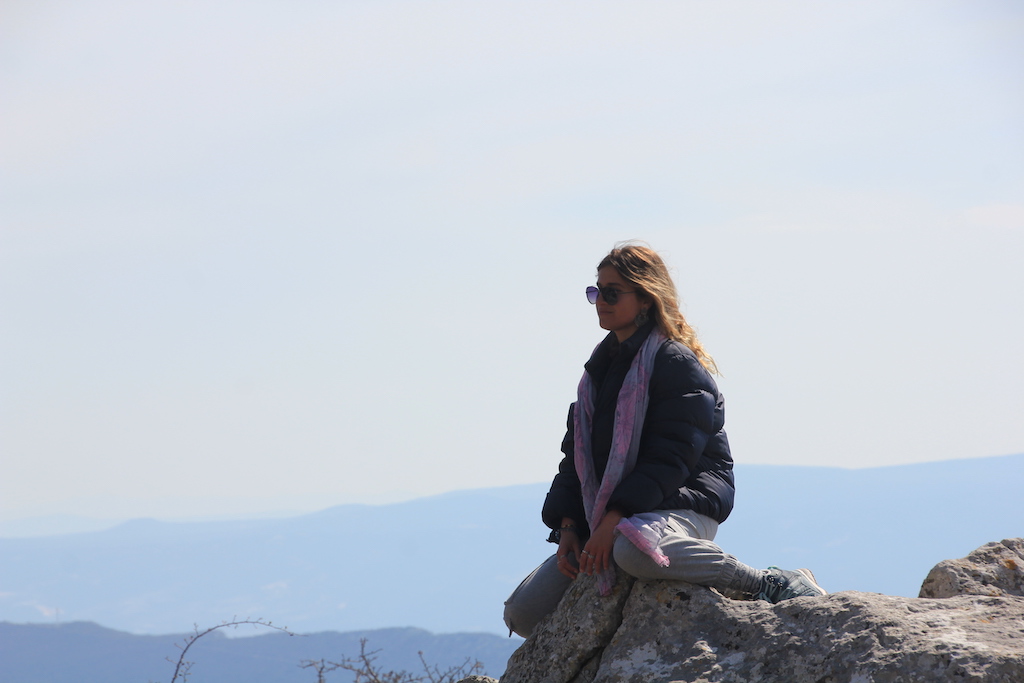
Half of us came here with knowledge of the Croatian language and definitely improved it with everyday practice. Half started to learn on the ground and reached a significant level of comprehension. For sure, it's easier to learn Croatian if you speak some Slavic language. When Nellia doesn't remember any word in Croatian, she just says the Russian word instead of it, and it often helps. However, Nellia and Dana recognise that we're not really motivated to bone up Croatian, as far as almost everybody in Zagreb and Split speaks English. I understand them. Only once I observed a seller who didn't speak English, it was in a sewing store - certainly not popular among tourists and foreigners! Nevertheless, I agree with Daria that if you plan to stay here for a long time, it worth learning some Croatian.
Pomalo
'Pomalo' that is a part of local mentality and a Croatian word for 'take it easy, 'hello', 'how are you, 'i'm fine, 'I'll do it tomorrow' affected our attitude to life. When Dana arrived in Saint-Petersburg after a year in Croatia, she noticed she became more patient seeing lines in the metro or people smoking in the corridors of the metro. Meanwhile, she supposes that Petersburg encourages initiative and entrepreneurship more than Zagreb, the lifestyle there is more dynamic. Nellia and I as well can barely imagine our years of hard studying and hard-working in the atmosphere of 'fjaka' (a Croatian word for siesta that can last infinitely) and 'pomalo'. But whereas we've already passed this hard period of life Moscow, we enjoy every morning in Split.
For more on travel in Croatia, follow TCN's dedicated page.


